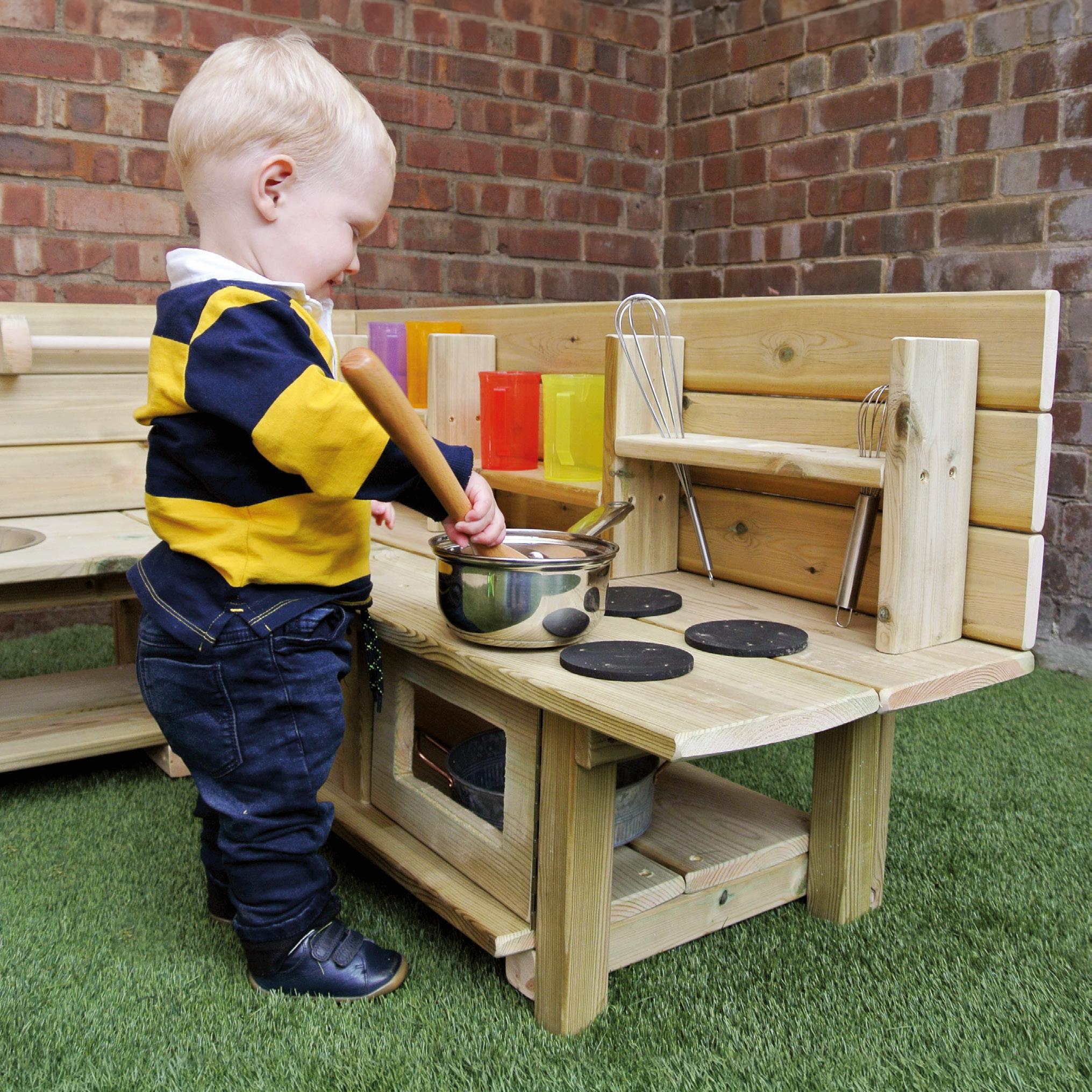Time for action
Political pledges play out Recruit to retain
A manager’s perspective



Political pledges play out Recruit to retain
A manager’s perspective



As a nursery business owner, you understand the importance of having a competent team to guarantee the success of your business. At dot2dot, we share your values and believe our people and network of strategic partners will serve as an extension of your team. Whether it’s an unexpected incident, a new venture, seeking advice, or making a change, we are always there to support you.
With 20 years of experience supporting nurseries like yours, we have acquired a wealth of knowledge and expertise we are eager to share with you.




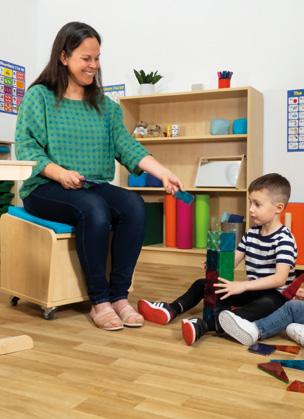





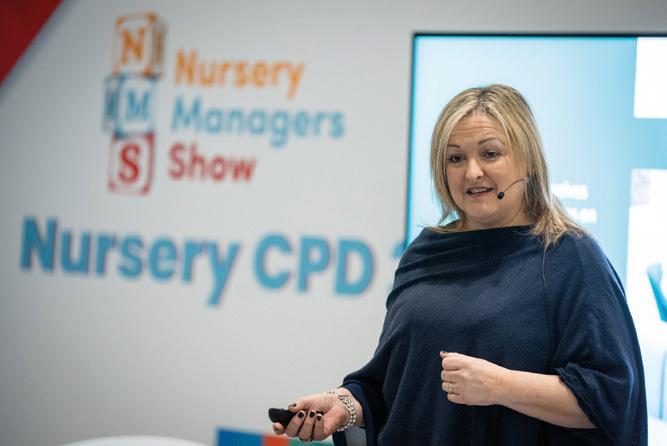
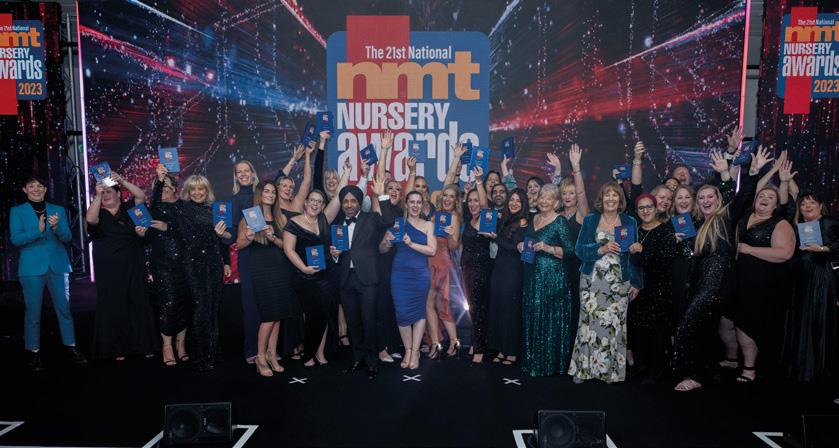
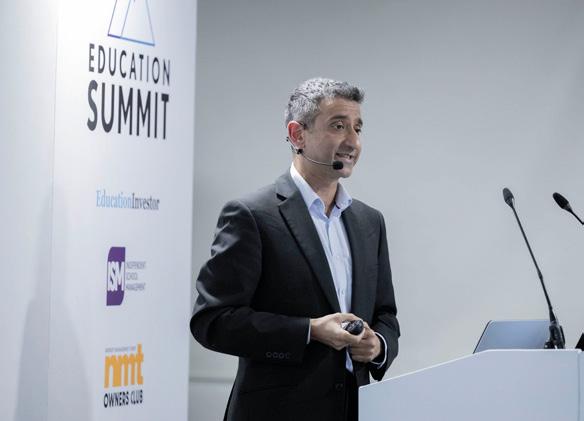
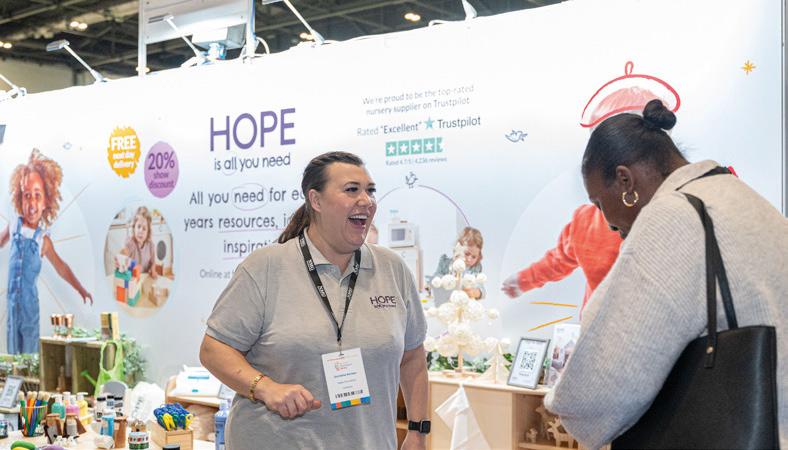


Chief operating officer
Sarah Hyman
Chief marketing officer
Julia Payne Business development director
Mike Griffin Sales manager
This year, more than any other in recent memory, more people than ever around the world have the opportunity to vote.
In 2024, around half the world will go to the polls – some four billion people in 76 nations. And in the UK, political parties have been dominating our news channels even more of late, especially as April marks the first phase of the government’s childcare expansion plan.
It will be a tense balancing act over the next couple of months as a number of factors collide at the same time, that is, the entitlement offer, the National Living Wage increases and the government’s recruitment programme launch.
The issue is that the sector needs an urgent injection of financial support for providers in order to manage operating and increasing staffing costs.
In this issue, NMT takes a look at how the government is tackling the recruitment crisis as new research from the Recruitment and Employment Confederation found that, in January 2024, active job vacancies for early years practitioners increased by 146.2% on pre-pandemic levels (February 2020). Active job postings for early education and childcare assistants were up 30.2% in the same period.
Neil Leitch, chief executive of the Early Years Alliance shared his thoughts on the research: “Research from the Recruitment and Employment Confederation is extremely concerning, yet not at all surprising. For years now the early years sector has had to survive on shoestring funding rates, resulting in consistently low levels of pay across the sector. Is it any wonder then that experienced educators are leaving in their droves and settings are struggling to recruit?
“It is absolutely critical, therefore, that the government recognises just how dire
the situation has become and put in place meaningful action as soon as possible. Without this not only is the future of the sector in jeopardy but those who will benefit most from early years education are even more likely to lose out.”
You’ll also read insights from training experts, Realise, as its operations director shares the changing landscape of the funded training market and the options available to early years settings.
We know that offering career development opportunities and different pathways to employees encourages them to stay with the business, as well as increases productivity by minimising the skills gap.
We also spoke to early years expert Jordan Tully on the importance of training and why providers need to think long-term so that effective strategies don’t just stop after the recruitment needs are met.
The next couple of months will certainly be defining ones for the sector as pledges and promises reach their deadlines to be put to the test.■ Briony Richter


An Early Years Alliance survey has found that providers across the country will struggle to meet increased demand for funded early years places under the upcoming entitlement expansion.
Last year the government announced its early years entitlement offer from April this year for children aged two-yearold from eligible working families, and for eligible children aged nine months onwards from September.
The first part of this rollout is just over a month away, but the survey showed that unaddressed capacity and funding challenges mean that most nurseries, pre-schools and childminders planning to offer the expansion will be unable to increase places to meet demand. Key stats include:
• 68% of all respondents say they are
Last year Childbase Partnership teams and families across 44 day nurseries raised £165,616 in cash and 9,268 kgs in food donations for the Trussell Trust which supports food bank centres.
At a presentation ceremony, Sophie Sharp, the Trussell Trust’s corporate partnership manager, said: “You are an extraordinary and passionate group who have far exceeded our expectations in this year-long partnership. Your legacy of fundraising, food donations and promoting awareness of the Trussell Trust will continue to make a difference going forward.”
Childbase Partnership’s head of charity and regional director Michelle Lockhart congratulated charity representatives: “We are always ambitious in our fundraising, but given the cost of living crisis these totals represent extraordinary effort and generosity. We are mindful that the need remains and while our focus as a company will be directed to a new ‘charity of the year’ in 2024, I know we will all continue to do what we can to address food poverty.”
Trussell Trust, which supports the
currently full.
• Of the 86% of respondents planning to offer funded two-year-old places who are predicting an increase in demand, 71% aren’t planning to increase the number of two-year-old places they offer.
• 86% of nurseries and pre-schools say that the upcoming increase in the National Living Wage will have a negative impact on their setting’s finances.
The Department for Education has launched a recruitment campaign to encourage more people to join or return to the sector.
The ‘Do Something Big’ campaign includes a trial in 20 local authorities in England from April, offering a £1,000
cash sign-on bonus.
Sector leaders and representatives stated that the £6.5 million campaign won’t be enough to stem the urgent recruitment problems, arguing that while the sign-on bonus might offer short-term relief, it doesn’t provide a long-term solution.
Neil Leitch, chief executive of the Early Years Alliance, said: “We know that, despite its challenges, working in the early years is one of the best possible careers to have, and so we hope that this campaign will help raise awareness.
“That said, given that we are now less than two months away from the first phase of early entitlement expansion, we’re clear that any suggestion that this campaign alone will be enough to drive up educator numbers in time to meet rising demand is ludicrous.”

largest network of food banks in the UK, provided a record three million emergency food parcels during the year, with more than one million of these for children.
Childbase Partnership, which has a dedicated charity department supporting fundraising activities company-wide, has given more than £3.5 million to worthy causes in its 35-year history.
N Family Club has a new benefits report for the upcoming year, showcasing a number of offerings which aim to reward staff.
Part of the package includes a 40% reduction in fees for permanent employees, as well as a focus on financial wellbeing through its new pension provider, and partnerships with
Wagestream, MyGym and Each Person’s platforms.
Alongside the usual core offers, the benefits package is split into mental, physical and financial wellbeing to highlight a focus on flexibility, personal and professional wellbeing and work-life balance for hard-working teams. Chief people officer, Mark Hassan-Ali, said: “We are proud to be sharing our 2024 N Benefits with team members across N Family Club. It’s such an exciting time to be a part of the N Family – this year we’ve introduced a number of new and enhanced benefits which truly support every dream at every stage of life, including when things get tough.

Realise has launched a campaign to promote early years apprenticeships, highlighting the benefits and opportunities available to nurseries and learners.
The apprenticeship schemes cover Levels 2, 3 and 5 and are open to people aged over 16 who are either already employed by an early years setting, looking to move out of unemployment into the sector, or interested in changing careers.
Realise’s strategy will include attracting more men to work in early years environments, as only around 2% of the sector workforce is male.
Karen Derbyshire, operations director for early years at Realise, said “Apprenticeships have always been a vital part of the recruitment and retention strategy of any nursery, but now they are more significant than ever with the seismic increase in demand for places on the way,”
National Day Nurseries Association (NDNA) Scotland is launching Childcare Works, a programme enabling people to become trainee support workers.
The programme is being funded by East Ayrshire Local Employability Partnership

and runs from 11 March until 28 June. It is targeting eight trainee support workers aged 17 or over across East Ayrshire who are not in education or employment.
The programme will deliver one-to-one coaching and create a training pathway to a career in early learning and childcare. Previous experience of working in a childcare environment is not required as candidates are identified based on aptitude, informal experience of childcare, and a willingness to undertake training.
The 16-week programme focuses on practical skills and placement experience which includes support and mentoring by NDNA. It also gives early years providers a new way to develop and find new talent.
To qualify as a provider placement setting for the programme, settings must be able to provide a suitable job role for a candidate for 12 weeks.
NDNA’s Childcare Works project has been implemented successfully in Wales for more than five years.
The Early Years Alliance has launched a publication to help early years providers embed an effective culture of safeguarding.
‘Developing an Effective Safeguarding Culture in Early Years Education’ provides guidance on how settings can improve their practice, raise standards, and ensure their provision is child-centred.
Topics explored include working in a child- and family-centred way, how to create a culture of open communication, and embedding good practice and avoiding bias.
Michael Freeston, director of quality improvement at the Early Years Alliance, said: “Embedding a safeguarding culture in early years settings is not only a regulatory requirement, but is crucial in giving children the best start in life.
“As such, ‘Developing an Effective Safeguarding Culture in Early Years Education’ provides guidance, support and expertise on how settings can
ensure that they not only meet statutory requirements but are able to embed and maintain a culture which goes above and beyond that.” ■







In this leadership series, NMT speaks to Gareth Degenhart, founder and managing director, The Lime Trees
What has been your journey across the early years sector and how did you came to your current role?
I started this journey having worked for a decade as a sports coach and with a charity in a breakfast and after-school club. In 2007 my daughter was born and when the time came, she went into the nursery and then into the breakfast and after-school club. Professionally and as a father, I noticed some common themes. First, a complete lack of flexibility for parents. Second, the price point being too expensive for working families plain and simple. And third, a lack of overall quality. A lack of investment in resources and training and a lack of transparency.
In 2012 I began to consider whether I could set up something myself –something built around core principles of price, flexibility and quality, to address directly what I’d experienced first-hand. I knew full-well it would be a challenge because typically, quality comes at a price.
What’s the most challenging aspect of being a chief executive/ founder and how have you adapted your leadership style to get the best results?
As a rapidly growing business, one of our greatest challenges centres around
“In
2012
I
began to consider whether I could set up something myself – something built around core principles of price, flexibility and quality, to address directly what I’d experienced first-hand.”
communication. It’s vital our communication is fast and effective with genuine synergy – between departments, systems, individuals and the technologies we use = while still upholding those core principles I mentioned earlier.
In the current economic climate, a huge challenge is to be able to offer quality and flexible childcare that remains affordable. A five-star service relies on the best systems, the best people and a head office infrastructure that offers 24/7 support. Our vision, mission, values and structure are the bedrock to this – it’s why even now we can say we’re offering M&S quality at Lidl prices.
For me personally, it’s ensuring I can motivate and inspire the whole team while giving them crystal-clear clarity on the vision of the company.
Employee wellbeing initiatives continue to evolve to meet the diverse needs of staff. What wellbeing policies are you most proud of?

lots of touch points and genuine care for people.
How do you support and encourage ongoing professional development for employees?
Our approach is what I’d call holistic. I think it’s worth saying, probably a little controversially, that you do have to accept childcare is a hard gig. Typically, long hours, average pay and a huge responsibility.
Our wellbeing programme is based on treating everyone as an individual and seeing the person, not just the employee. We have a wellbeing officer who creates personalised wellbeing action plans, we carry out one-to-one supervisions and pay for a 24-hour mental health support line for staff. We encourage community through awards nights and companywide events and we make sure that worklife balance is always high on the agenda. It requires open, honest communication,
CPD underpins everything we do. New staff undertake a comprehensive amount of training – designated safeguarding training, SEND training and behavioural management training –before they start with us. This goes way beyond what Ofsted expects.
Over 200 staff (soon to be the entire company) have paediatric first aid training, and all staff have a personal online training account which they can access at any time and be paid for. We work hard to identify common industry themes or recurring topics that arise during supervisions and create bespoke monthly training to address those. Staff are paid and rewarded for increasing their knowledge and skills base and are encouraged to progress in both qualification and responsibility within the organisation.
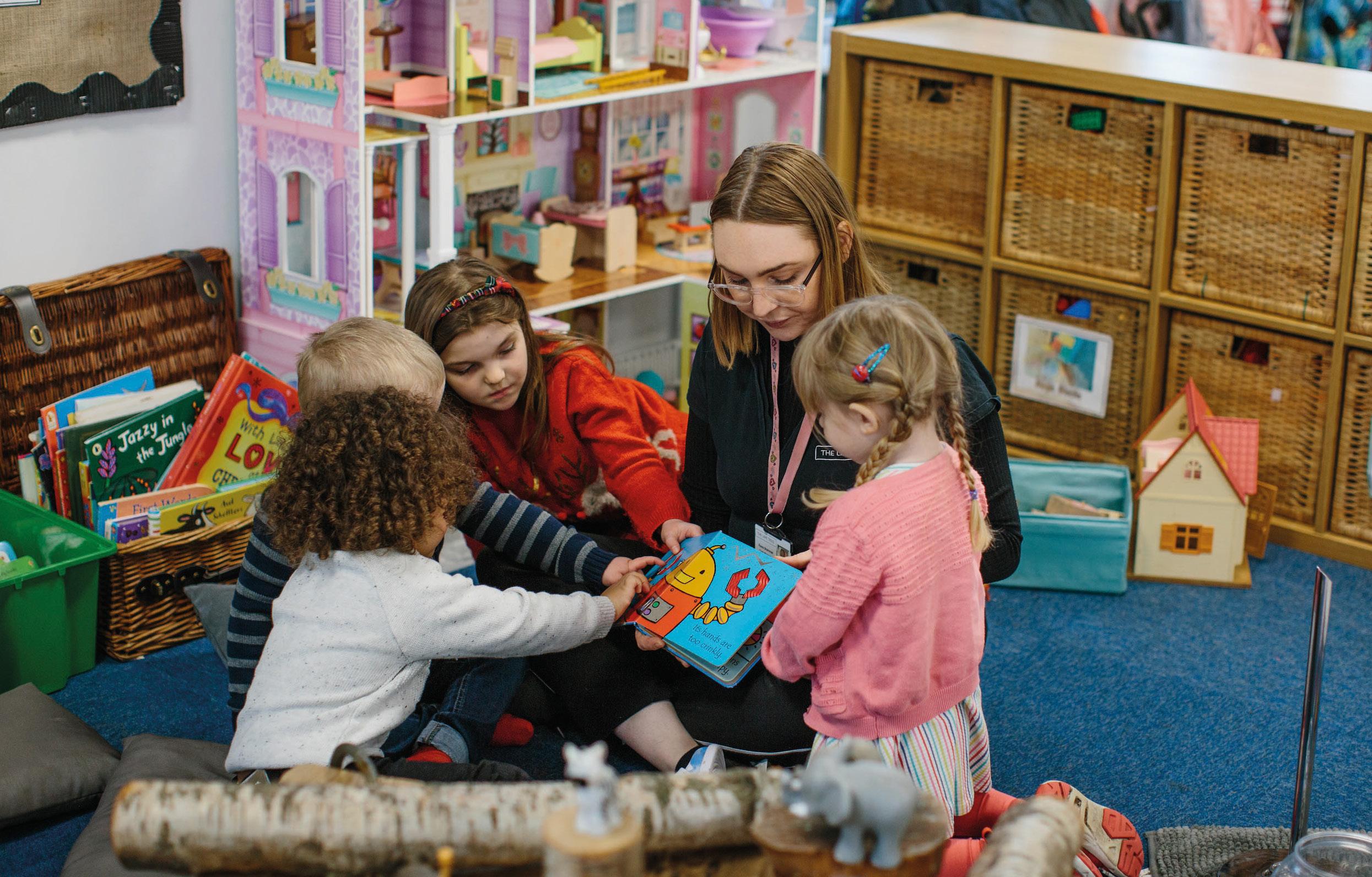
How are you approaching the government’s expansion plan of ‘free’ childcare that is due to begin in April?
Meticulous planning. Knowing that the business model is going to change from being fee-income from parents, as it is primarily now, to income from the DfE free entitlement scheme. So, it’s knowing that, and anticipating a huge shift from a cash flow perspective because when we receive our income, it is going to change our financial model, and therefore our entire business model has to be ready.
As a business owner, what would ease the operational and financial challenges?
I believe the biggest thing to impact the sector’s financial challenges would be for central government to acknowledge the strain that the industry is under. We’ve been under strain for years, but most recently we’ve seen the living wage go up several times and the cost of living increase by 10 to 11%. And yet, the free entitlement payments we receive from local councils don’t reflect that by any stretch of the imagination. Nottinghamshire saw the increase for
“We’re always looking for ways to improve and I’m focused on having consistency of experience across the network. Whether that’s for a child, a parent or a member of staff and regardless of the touch point – a consistent, quality experience.”
two-year-olds go up by 1.4% and three and four-year-olds by 6%, so there is no correlation between these two things and the impact is an almost unbearable financial disparity.
Operationally, we’re in something of a chicken-and-egg scenario. The government’s driver for the free childcare plan is to try to kick-start the economy –millions being invested – to reignite the thirst for students to get into childcare, to consider the sector as a career, and to study for a Level 3 qualification. Which is all well and good, it’s just a shame
that investment wasn’t there years ago because that would have undoubtedly mitigated some of the current challenges. Now, we need this to remain high on the agenda so that national strategies can be put in place that will support and encourage secondary schools, sixth forms and colleges to entice students into the sector.
What are your priorities for 2024?
There are three strands to our priorities this year: delivery, culture and sustainability.
We’re always looking for ways to improve and I’m focused on having consistency of experience across the network. Whether that’s for a child, a parent or a member of staff and regardless of the touch point – a consistent, quality experience.
Culture can be lost as you grow so we protect ours vehemently. This year we’re more focused than ever on nurturing our team and integrating new members into the family in a way that’s meaningful and long-lasting.
Our sustainability focus is about balancing the constant commitment to reinvestment with long-term growth plans and realistic returns. ■
The UK government is rethinking its approach to recruitment for the early years sector. Briony Richter takes a closer look at what it plans to do and how the sector has responded
For years, providers and sector leaders have been calling on the government to level up its support for early years as workforce challenges worsened. Both recruitment and retention strategies play a crucial role in the competition for top talent.
This is also election year so it’s hardly surprising that a number of new initiatives are being showcased by all parties.
That being said, it’s worth highlighting some of the campaigns and programmes that are, or will be, available for the sector and what benefits they potentially offer.
The ‘Do Something Big’ campaign
In February the Department for Education trialled its ‘Do Something Big’ national campaign which aims to encourage recruits and returners into the early years workforce, with the incentive of a £1,000 cash payment to be paid shortly after they take up their role. Part of this campaign will take place in 20 local authorities in England from April.
This £6.5 million campaign launched just two months before the first phase of the government’s childcare expansion offering.
Education secretary, Gillian Keegan said: “Parents shouldn’t have to choose between a career and a family, and our expanded childcare offer is going to make sure of that.”
Eligible working parents of three- and four-year-olds already get 30 hours a week of free childcare.
From April, working parents of twoyear-olds will be able to access 15 hours of free childcare.
From September, 15 hours of free childcare will be extended down to the age of nine months for working parents.
And from September 2025, working parents of children aged nine months and upwards will be entitled to 30 hours free childcare per week right up until their child starts school.
Education secretary, Gillian Keegan said: “Parents shouldn’t have to choose between a career and a family, and our expanded childcare offer is going to make sure of that.
“From April, hundreds of thousands of parents of two-year-olds will get 15 funded hours. This is good for families and good for the wider economy, ultimately putting more money in parents’ pockets at the end of the month.
“The fantastic nurseries, childminders and professionals across the childcare sector are central to the success of this rollout and our new recruitment campaign will support them in continuing to deliver the flexible and high-quality childcare parents need.”
An online survey by Perspectus Global revealed that 51% of British people would consider working with pre-school children, and two in five (39%) agreed they would be more likely to do so if given £1,000 cash after joining.
The survey highlighted just how influential early years professionals are in a child’s development, with 97% of parents agreeing an early years professional had an impact on their child’s development, and two thirds
“Many parents already recognise how amazing early years and childcare professionals are, but it’s time that everyone else does too, and that the sector is given the recognition and importance it deserves in the valuable job it does to shape future generations.”
(66%) agreeing they are one of the most important people in their child’s life.
Kids Planet chief executive Clare Roberts said: “Many parents already recognise how amazing early years and childcare professionals are, but it’s time that everyone else does too, and that the sector is given the recognition and importance it deserves in the valuable job it does to shape future generations.
“To deliver the government’s expansion of childcare and for it to be successful, we need to see significant growth across the sector, and what better way than to spotlight the incredible people already supporting and shaping our children.
“I welcome the launch of this campaign and would urge anyone interested in pursuing a career in childcare to take that first step and start exploring the opportunities available.”
The recruitment campaign is a positive

start and if the government works alongside the sector there’s a good chance that more sustainable programmes could develop. That being said, the recruitment challenges facing the sector need urgent attention.
Recent research published by the Recruitment and Employment Confederation revealed that, in January this year, active job vacancies for early years practitioners has increased by 146.2% on pre-pandemic levels (February 2020). Active job postings for early education and childcare assistants were up 30.2% in the same period.
Early years leaders and experts are concerned that this campaign, and especially the cash bonus, won’t resolve the long-term problems ahead.
Neil Leitch, chief executive of the Early Years Alliance, said: “We at the Alliance have long called for the government to do more to promote careers in the early years, and so there is no doubt that launch of this new recruitment campaign is a positive – though very overdue – step.
“That said, we’re clear that any suggestion that this campaign alone will be enough to drive up educator numbers in time to meet rising demand is ludicrous, and demonstrates a complete lack of understanding of the sheer scale of the staffing crisis facing the sector.
“What’s more, while a £1,000 cash incentive may encourage more people to join the early years in the short term, it does little – if anything at all – to retain both new and existing staff in the long-term. As such, if there is any chance of this campaign having a lasting impact, there must be just as much focus on staff retention, and ensuring that we do not continue to lose knowledgeable, experienced educators at the rate that we have been over recent years.”
Joeli Brearley, founder of charity Pregnant Then Screwed, said: “These plans are undoubtedly a step in the right direction, but they’re a drop in the ocean compared to what is needed. The sector needs tens of thousands more early years professionals if it is to meet the demand
“We at the Alliance have long called for the government to do more to promote careers in the early years, and so there is no doubt that launch of this new recruitment campaign is a positive – though very overdue – step.“
for places.”
“A one-off payment doesn’t deal with the fundamental issue that early years professionals leave the sector because the pay is dreadful and the work can be hugely stressful. The only way to sustainably solve the staffing crisis is to increase wages.”
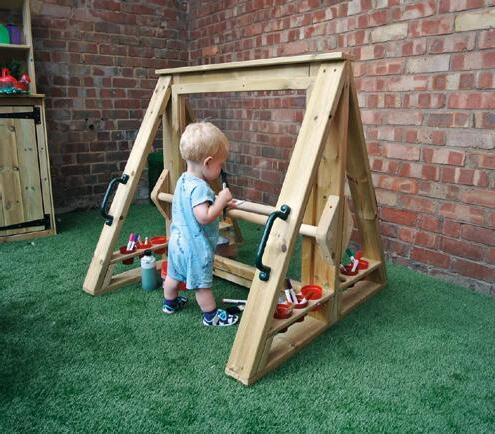

“A one-off payment doesn’t deal with the fundamental issue that early years professionals leave the sector because the pay is dreadful and the work can be hugely stressful. The only way to sustainably solve the staffing crisis is to increase wages.”
Purnima Tanuku, chief executive of NDNA said: “The sector needs thousands more staff so we hope that the tax-free incentive will form part of a comprehensive workforce plan if the pilot is successful.
“We know from our research that recruiting and retaining staff, especially qualified practitioners, is the biggest challenge facing all early years providers. This could also be the most significant barrier to parents being able to find their child a place.
“It’s important to stress that this campaign comes too late to support nurseries with the first phase of the childcare expansion. Campaigns like this take time to have a positive impact and the sector needs qualified and experienced staff now.
“Our research with providers suggests that 83% are operating at a loss or just breaking even. Without addressing funding which hasn’t kept pace with rising costs, nurseries are unable to pay competitive wages that their staff teams deserve so they can retain them in their settings. The government must bring forward a long-term workforce strategy
to address underfunding, recruitment, retention and career progression to support those who care for our youngest children.”■
“It’s important to stress that this campaign comes too late to support nurseries with the first phase of the childcare expansion. Campaigns like this take time to have a positive impact and the sector needs qualified and experienced staff now.”


A meeting with the owner of a small nursery group raised serious concerns about the number of youngsters with additional needs in early years settings. Jackie Hyde, managing director of nursery insurer dot2dot is undertaking work to reveal the scale of the issue
Fifteen months ago a client of dot2dot told me she had 38 children at one of her nurseries and 19 of the children had complex additional needs. This was already a major issue to the operation of the nursery and staff were struggling to cope. Each child was on its journey of assessment and although a few had Education, Health and Care (EHC) plans, many didn’t. On the day of my arrival, she had received a letter from her local authority requesting another child with a variety of medical issues attend the nursery.
Although we had suspected there was concern in the early years sector regarding the increased number of SEND children attending nurseries, this individual situation showed me the personal side and the effect on the individuals working within a nursery. This client was in a desperate situation of wanting to do their very best to support SEND children, but she and her colleagues were completely overwhelmed and exhausted with what they needed to deal with on a day-to-day basis. She
“However, the experience made me realise there’s a need to understand how many other nurseries are facing similar challenges, what is needed by these nurseries, and whether there’s anything we can do to help.”
stated they just couldn’t do any more at this particular setting.
In this case, we were able to secure some legal support to challenge the local authority and a decision was ultimately made to place the child elsewhere. However, the experience made me realise there’s a need to understand how many other nurseries are facing similar challenges, what is needed by these nurseries, and whether there’s anything we can do to help.
Back at my office, we reviewed the number of enquiries we had received relating to SEND children and there had been a substantial increase. When assessing the queries, we saw they were diverse in respect of the type of special needs. They also demonstrated concerns about managing risk, handling medical issues, and the legal implications should they get it wrong.
Why is an insurance provider so interested?
As a specialist broker to the sector, we speak to clients daily about their businesses and the risks they face. Anecdotally we are seeing an increase in the number of conversations we are having with nurseries regarding risk assessments and making suitable accommodations for children with additional and medical needs. In fact, in the past 12 months, 5% of the complex queries we have spoken to insurers about have been about children with complex medical or additional needs, including feeding tubes, food allergies, epilepsy and oxygen tanks to name a few. For us, it’s vital to our business that yours succeeds. We can see that SEND is a growing challenge for the sector and is

creating new risks and hurdles for your business and we are here to support you, however we can.
What we know at the moment
According to the UK government there are 389,171 children in UK schools with an EHC Plan and an additional 1,183,384 children with additional needs in school without an EHC Plan. Therefore there must be a similar number of children requiring additional support in early years, however the data is minimal.
What happened next?
We decided to speak with industry experts to seek guidance on how we can support nurseries in respect of risk management, and legal and practitional areas. We had great initial feedback, but ultimately all parties felt it was vital that we didn’t make assumptions but truly understood the extent of the issue and
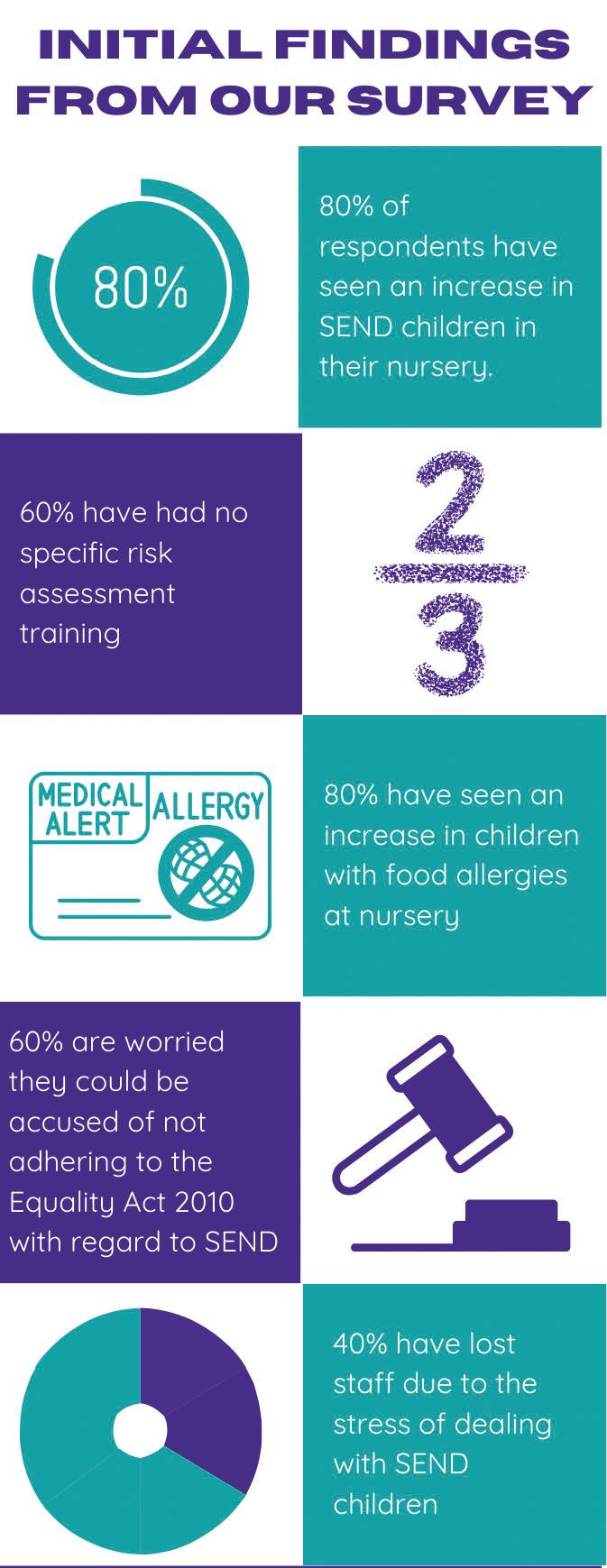
“We would like to thank those who have already submitted responses but we need more to ensure we fully represent nurseries across the UK. If you are a group, we need the nursery manager for each of your settings to complete the survey.”
what support the nurseries needed and when. When this information is available, we would be in a position to build a variety of documents to deal with areas such as applications for children to attend, quality risk assessment tools, guidance on how you decide when a nursery can no longer meet the child’s needs, and legal insight to manage and adherence to the Equality Act.
In December last year, we launched a survey to seek the insight we desperately needed. We would like to thank those who have already submitted responses but we need more to ensure we fully represent nurseries across the UK. If you are a group, we need the nursery manager for each of your settings to complete the survey.
So far, more than 600 responses have been received and the results to date are alongside this article.
We were delighted by the response at the NMT Owners Club in the Midlands; following our presentation on this subject we received 50 responses within 24 hours and the support at the event from the various owners was very much appreciated. It did validate that what we were doing was worthwhile.
We believe if the data set is large enough this could be utilised by key organisations to provide vital evidence of the immense pressure the early years sector is under. The University of Bolton has confirmed it will support us with the data analysis.
The more insight we get, the better the result for all.
Please help us by scanning the QR code and circulating it to your management team. ■

Andrew K Steen, managing director of Redwoods Dowling Kerr, looks at the strategy of growing through acquisition and considers the potential benefits for childcare business owners
Last year, Redwoods Dowling Kerr conducted two surveys aimed at childcare business owners, which included a question relating to expansion plans. In both surveys, an average of 72% of respondents commented that they intended to expand their business before the end of 2024 either via acquisition or organic means.
For existing day nursery business
“For existing day nursery business owners, acquisitions present a compelling pathway to scale up operations, increase market share, and solidify the business’s position in the industry.”
owners, acquisitions present a compelling pathway to scale up operations, increase market share, and solidify the business’s position in the industry. The acquisition route can enable business owners to expand their footprint rapidly in new geographic locations, tap into new customer segments, and realise economies of scale, while increasing services and establishing a more extensive network within the childcare market.
Acquiring other day nurseries or complementary childcare services can diversify the business’s portfolio. It helps offer a broader range of services and programmes to cater to a diversity of customer needs. Not only does this diversification attract a wider customer base, but it also reduces the risk associated with dependence on a single location or service offering.

Strategic acquisitions can lead to operational synergies and economies of scale. Consolidating administrative functions, streamlining operations, and sharing best practices across multiple


locations can result in cost savings, improved efficiencies and service levels, and increased profitability.
Acquiring nurseries in different regions or areas where the business doesn’t currently operate can be a way to gain access to new markets and demographics. Additionally, acquiring facilities with experienced staff and management can bring valuable expertise and knowledge into the existing business. This fosters innovation and operational improvements.
Acquiring established nurseries with strong brand equity can enhance the reputation and brand recognition of the business. A reputable brand name can help attract more families seeking childcare services. This helps contribute to increased occupancy and potential revenue growth.
Acquiring other nurseries may also mean gaining access to skilled and experienced staff members and management personnel. Strengthening the workforce
contributes to delivering high-quality childcare services as talented individuals enrich the existing team and help fill any potential skills gaps.
Acquisitions allow businesses to consolidate market share and gain a competitive edge within the childcare industry. This consolidation can position the business as a leader in the market, offering a compelling value proposition that outperforms competitors.
A business that demonstrates sustained growth through strategic acquisitions can become more attractive to potential investors, partners or stakeholders. Increased market share, diversified revenue streams, and a strong presence in multiple locations can positively influence the perceived value of the business, with potential to deliver a higher sale multiple due to the increased level of attractiveness to prospective acquirers.
Of course, it’s crucial to approach acquisitions with careful consideration and due diligence. Business owners should thoroughly assess potential acquisition targets, and evaluate their
“A reputable brand name can help attract more families seeking childcare services. This helps contribute to increased occupancy and potential revenue growth.”
financial health, cultural fit, operational synergies, and integration strategies to ensure a successful transition.
In conclusion, for an existing day nursery owner, considering acquisitions can be a strategic tool to build value, foster growth, and strengthen their position in the childcare industry. When executed thoughtfully and aligned with long-term goals, acquisitions can drive significant value creation and propel the business toward sustained success and expansion.
Buy and Build strategies are proven within the childcare sector and have been adopted by many quality operators, reinforcing their position in the market, and providing an attractive route to exit at the appropriate time.■
In recent years there’s been a growing recognition of the importance of outdoor pedagogies in enriching the learning experiences of young children. Briony Richter explores
Outdoor learning involves taking classroom activities outside into natural environments such as parks, gardens or forests.
Across the UK outdoor pedagogies have gained popularity in early years education settings, and for good reason. There are a variety of ways that nurseries are boosting their outdoor learning environments to align with their pedagogy outdoors.
Outdoor learning and play encourages physical activity and motor skills development. Climbing, running, jumping and balancing on natural terrain help children build strength, coordination, and spatial awareness. These activities also promote a healthy lifestyle from a young age and those practices communicated back home strengthens the habits of a healthy lifestyle.
More nurseries are either moving to a full or expanded outdoor curriculum as the outdoors provides greater opportunities for children to engage in moderate to vigorous physical activity more than when they’re indoors.
“More nurseries are either moving to a full or expanded outdoor curriculum as the outdoors provides greater opportunities for children to engage in moderate to vigorous physical activity more than when they’re indoors.”
There’s a wealth of sensory experiences that engage children’s senses of sight, sound, touch and smell. By exploring natural materials, observing wildlife and feeling different textures, children engage in hands-on learning that stimulates their curiosity and creativity and this also improves their social development.
Quite often, outdoor activities planned by nurseries involve teamwork and communication.
It’s undeniable that for the younger generations, the environment is top of
their mind. Now, more than ever, people are getting involved in sustainability and so are nurseries.
Bardykes Farm Nursery School in South Lanarkshire stated that it is passionate about always being sustainable and aims to have zero waste.
The nursery promotes environmental sustainability as much as it can and the children learn about the importance of recycling and caring for the environment. Bardykes highlighted some of the projects in place that can be helpful:
• Eco schools: this is a global programme across 67 countries, helping children to develop environmental skills


and awareness through a seven step framework.
• Pocket gardens: A Keep Scotland Beautiful initiative helping children and families to create and grow their own small gardens at home – a great way to encourage continued learning at home.
• ‘Rag Bag’ recycling scheme: This was created by Bardykes’ parents committee and supports families when clearing out and helping towards a fundraising target. Bardykes stated that: “The scheme increases awareness about textile recycling and by increasing recycling rates we can help the environment by ensuring less material goes to landfill.”
Another nursery group that has fully embraced integrating sustainability into its pedagogy is LEYF in London. Sustainability is a passion of chief executive Jue O’Sullivan who regularly writes and publishes on the benefits of outdoor learning for children’s wider understanding of nature.
In LEYF’s ‘Sustainability strategy’ paper, Sullivan highlights worrying
rate of climate change affecting global temperatures and why action to prevent this should begin during the early years.
Sullivan said: “Early years is a natural place to begin the conversation about sustainability, where children and colleagues are partners in the learning process and encouraged to be critical thinkers and take action for sustainable development and lead a culture of change. The LEYF approach to sustainability is framed within the 17 Sustainable Development Goals agreed by the United Nations which are underpinned by the three pillars of sustainability: economic prosperity, social equity and environmental integrity.”
There are eight principles that underpin LEYF’s approach to sustainability:
• Reduce: Decrease food and material waste.
• Reuse: Use resources as many times as safely possible.
• Recycle: Teach children the importance of recycling early to imbed the habit.
• Repair: Try to fix things rather than buy again.
• Rot: Let things that can, go back to the earth to help with gardening.
• Respect: Be curious and thoughtful about the natural environment.
• Responsibility: Encourage the children to learn about their own responsibility towards the environment which hopefully becomes a lifelong commitment.
Experiencing nature first-hand fosters an appreciation for the natural world and encourages environmentally responsible attitudes and behaviours. Children develop a deeper understanding of biodiversity, conservation and sustainability through direct interaction with plants, animals and ecosystems. Outdoor strategies and pedagogies will continue to play a vital role in early years education, offering benefits that contribute to children’s holistic development. By embracing outdoor learning opportunities, educators can create dynamic and engaging educational experiences that nurture young learners’ curiosity and wellbeing.■
Jordan Tully, founder of a network that delivers early years podcasts and training support, says the way training is delivered makes all the difference
Iwas asked a question recently by a friend around the importance of the training provider when getting your early years qualifications.
Now, I think it’s important to mention that this friend I’m referencing, does not actually work in our wonderful sector. I had been discussing with her about how I felt things had changed a lot since I obtained my childcare Level 3, 12 years ago. I remember when I was working towards obtaining my qualification, my grandmother said to me the exact same thing that I have now just written, regarding how much it had changed. She always used to tell me about how my childcare Level 3 NVQ differed from when she trained and obtained her NNEB.
During this conversation with my friend, she asked me a question, and it’s a question I think we should all be asking and reminding ourselves a lot more regularly. She asked me “how important is the training though? Do you think where people train and how they train makes a difference?” Of course, my friend isn’t silly and is obviously aware of the importance of training and gaining a qualification, but she was referring more to the real impact of the training and
“I remember when I was working towards obtaining my qualification, my grandmother said to me the exact same thing that I have now just written, regarding how much it had changed.”
“I was lucky enough last year to be invited onto a podcast and while discussing the sector, I was asked what challenges I felt we are currently facing. I replied with “recruitment.”
or environment they are taught in. This really got me thinking and I started to reflect.
Focus on staffing needs past recruitment
I was lucky enough last year to be invited onto a podcast and while discussing the sector, I was asked what challenges I felt we are currently facing. I replied with “recruitment”. Now although that was very much correct, as recruiting for early years settings has become a harder task, I decided to change my answer slightly. The answer that I decided to give instead was “staffing”.
Some people may think that those two answers are very similar, if not the same; however, I think that staffing suited more what I then went on to discuss. You may at this point start wondering how I’ve gone from the question at the beginning, to this. Trust the process and you will see how they link. When I decided to change my answer to staffing, I felt it was a more appropriate answer to the question. Yes, recruitment is a challenge, However, I really do believe that it doesn’t end there. Once your recruitment needs are met, this doesn’t always mean that your staffing needs are too. Even when you’re lucky enough to

find candidates, this doesn’t mean that these are high-quality, passionate and inspiring individuals, and that is where I think the challenge is.
It saddens me to say that more and more often, I’m seeing people join the sector for many reasons, but less and less because they have a real fire inside them for all things early years. I honestly believe that the training that staff have is the first initial step in getting our next set of qualified staff excited and hungry to immerse themselves into the wonders of early years. Their training is the first initial step in sparking awe and wonder. Their training unfortunately can be the initial first step in them thinking it’s not a career for them. So to answer the question above, yes, I do think the initial training they receive does impact them; yes, I do think who they are being trained and lead by does impact them, and unfortunately, yes, I do also think there needs to be more done to ensure future learners are being mentored effectively, supported, and being inspired in a way that embeds a lifelong love of early years.

“Everyday is a school day and the learning or extension of our existing knowledge should continue, always. We should be continuously reflecting, reviewing and improving. “
The learning doesn’t stop just because the qualification has been gained.
Employers, leaders and those wellknown names in the sector all still have a responsibility actively to promote on-the-job learning, staff meetings, managers’ shows and CPD sessions –it’s all still important, even when the qualification has been awarded. Everyday is a school day and the learning or extension of our existing knowledge should continue, always. We should be continuously reflecting, reviewing and improving.
This being said, I would like to mention how impressed I have been with Realise. Its vision is to create outstanding early years practitioners, with training that goes above and beyond the ‘need to know’ and to be able to do that as part of the training programme – actually
putting into practice what it preaches.
With fresh ideas and a team of openminded individuals who are always prepared to upskill themselves and be as inclusive as possible, Realise is definitely implementing the positive change that’s currently needed to ensure high-quality training is provided to its learners.
So what can we do? Let’s ignite the passion back into our learners; let’s spark that curiosity, awe and wonder back into our future educators/practitioners, and let’s show everyone, regardless of their gender, that a career in early years is one that anyone would later regret not considering. ■
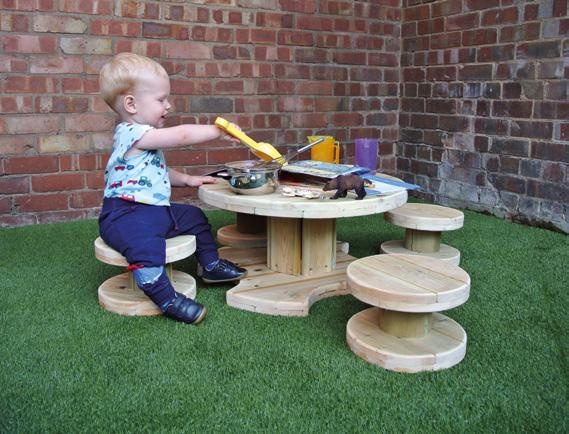
Early years settings are redefining their approach to cultivating a healthy and supportive work environment for staff. Briony Richter speaks to Mark Hassan-Ali, chief people officer at N Family Club about the benefits it offers and its staff wellbeing strategies
You recently announced your benefits package for 2024. What are the new benefits for your employees?
This year we’ve introduced a number of new and enhanced benefits which truly support every dream at every stage of life, including when things get tough. At the forefront is our significantly increased nursery discount and a timely focus on financial wellbeing. N Family Club now offers a 40% reduction in nursery fees for permanent team members and allows them to pay this through salary exchange, ensuring they can make the most of our services.
Other benefits introduced this year include a new pension provider which offers fantastic financial services, a partnership with Wagestream to enhance financial wellbeing and provide real-time access to earned wages ahead of payday.
Long-term commitment rewards continue to feature in our benefits package, and this year we’ve unveiled a
“Other benefits introduced this year include a new pension provider which offers fantastic financial services, a partnership with Wagestream to enhance financial wellbeing and provide real-time access to earned wages ahead of payday.”
10-year service milestone with an ‘Out of this world trip’. Expanding on the current five-year service milestone, the new addition provides a team member with £2,000 net in their pocket and two weeks of additional paid leave when they reach 10-years of service –we’re excited to see what our team members choose to do when they reach this.
What are some of the favourite policies that you’ve kept in place from previous years?
We have a number of firm favourites when it comes to our benefits offering. We’ve also kept our personal development fund in place, offering N team members up to £100 a year to put towards a hobby, learning a new skill, attending a new class or doing something thoughtful for their wellbeing.
Additionally, we’re committed to offering our ‘Round the world trip’ after five years of service with N Family Club, and we’ve now seen a number of team members jet off across the globe to celebrate this milestone. We offer £1,000 net cash contribution and an extra two weeks of paid leave.
What specific metrics or indicators are used to measure the success and effectiveness of the benefits?
Measuring this involves tracking various metrics and indicators to assess their impact on team satisfaction, engagement, retention, and overall wellbeing.
Some of the specific metrics we use include measuring engagement and gathering feedback through our ‘happiness survey’, tracking utilisation rates of our benefits, analysing retention
 Mark Hassan-Ali
Mark Hassan-Ali
rates, and looking at health and wellness metrics including changes in absenteeism rates or participation in our wellbeing weeks.
In addition, assessing our company’s ability to attract top talent and recruitment metrics also gives us an insight into the perceived value of our benefits package. By gathering feedback and tracking these metrics we can assess the success and effectiveness of our benefits package and make informed decisions to continually optimise and tailor it to meet the evolving needs of our team.
What resources or support systems are in place to assist employees who may be experiencing stress or burnout?
It’s not always easy to work in the early years sector. Whatever your role, you play a part in preparing the next generation for life in an everchanging world – not to mention

“Feedback from team members plays a crucial role in shaping the ongoing development and refinement of our benefits, which in turn helps to create a culture where each and every team member is heard and valued, and where benefits meet the changing needs of our team.”
that at the moment you’re doing this amidst numerous sector and economic challenges.
Our nursery management teams and N reps offer immediate support within the nursery environment, through regular walk and talks and lunchtime feedback sessions.
It’s so important to invest in our team’s energy, and from these regular touchpoints we can understand if a team member wants more time to spend
with their family, study or pursue other hobbies. Whatever flexibility is needed, if anyone is experiencing stress with juggling work and life, we can support them through N Flex, providing either a flexi full-time offer or a part-time, lunch cover, job share or flexi-bank contract instead of the ‘classic 40’ full-time employment. Team members have always been able to apply for flexible working options from day one of employment at N.
We know work-life balance is essential for a team member to bring their energy and enthusiasm to early years, which is why we offer an above-industry standard holidays package, an annual ‘Me day’ for self-indulgence or special occasions and discretionary leave in difficult circumstances. As stress can be caused by a variety of factors, we created our N Benefits, with physical, mental and financial wellbeing in mind, offering a number of resources to team members to help alleviate this pressure. Examples include mental health first aid at our nurseries, wellbeing and mindfulness support through InsightTimer and Headspace, and access to our employee assistance programme offering counselling, advice and wellbeing support.
Paige Francis, senior operations manager at N, travelled to Thailand, Malaysia and Singapore to celebrate her five-year N-iversary in 2023. She said “I’ve been dreaming of the trip I’d take ever since I first started at N. It was incredible to fully immerse myself and experience three different cultures. I feel very fortunate for being given such an amazing opportunity.”
How does the company incorporate diversity, equality and inclusion principles into its staff wellbeing initiatives and benefits package?
This involves ensuring that benefits are accessible to all team members regardless of their background or circumstances, and that we have something for everyone. One way in which we achieve this is by offering benefits to cater to the diverse needs of team members, such as mental health support services, family friendly benefits, flexible working, physical and financial wellness programmes, demonstrating a commitment to inclusivity.
Feedback from team members plays a crucial role in shaping the ongoing development and refinement of our benefits, which in turn helps to create a culture where each and every team member is heard and valued, and where benefits meet the changing needs of our team. This is why our N reps are instrumental in championing and shaping our inclusive benefit package.

What role does feedback from employees play in shaping the ongoing development and refinement of staff wellbeing programmes and benefits?
Our benefits package is completely shaped by team insight. Through our N reps, who feedback the team’s thoughts and feelings during regular meetings, as well as other touchpoints, we’re seeking feedback throughout the year, not just when the benefits package is due for review. These touchpoints allow us to gauge engagement, understand evolving needs, and refine our benefits package to better serve our team members.
Looking ahead, what is the longterm goal for enhancing staff wellbeing?
Looking ahead, our steadfast commitment lies in nurturing an inclusive, kind, and cohesive work culture where every team member feels valued, supported and empowered to flourish both personally and professionally. We are committed to everyone at N feeling a true sense of belonging. That is non-negotiable.
In terms of benefits, our aim is to offer a flexible framework that allows us to deliver a holistic package tailored to meet the diverse needs of our team,
“Looking ahead, our steadfast commitment lies in nurturing an inclusive, kind, and cohesive work culture where every team member feels valued, supported and empowered to flourish both personally and professionally.”
addressing various dimensions of wellbeing and ensuring that each team member has access to the support they need and prefer. ■


Kush Birdi, managing partner of Birdi & Co Solicitors, shares his essential insights to completing your nursery acquisitions in 2024.
The childcare sector has recently found itself at the centre of a heated debate, which has been primarily triggered by the introduction (and extension) of the ‘free childcare plan’. Proponents argue that the plan is a necessary step towards alleviating the financial burden on parents and promoting early childhood education.
However, critics raise concerns about the plan’s feasibility and potential strain on resources, fearing it could lead to challenges in maintaining quality standards and staff remuneration, given the already tight margins in the sector. The controversy highlights the complex balance between accessibility, quality and sustainability of childcare provision.
All is not doom and gloom because, if history is anything to go by, the childcare sector is remarkably resilient. The sector’s adaptability is why I believe that confidence will remain high and that M&A activity will be strong in 2024.
Birdi & Co is a specialist legal advisor in the childcare sector and, in this article, I will provide you with my essential insights to completing your acquisitions this year.
“…if history is anything to go by, the childcare sector is remarkably resilient. The sector’s adaptability is why I believe that confidence will remain high.”
1. Locating the ideal nursery for acquisition
When looking for a day nursery to purchase, it’s important to take a number of key factors into consideration. Location is an important aspect, as you will want to find a setting that is easily accessible and in a good neighbourhood.
Capacity is also important, as you will want to make sure the day nursery can comfortably accommodate the number of children you are looking for. Additionally, you will want to think about the age range of the children that the day nursery serves, to ensure it aligns with your own needs and the needs of the local community.
One way to start your search is by looking at listings of available nurseries, either online or through an agent or broker. Visiting existing day nurseries in the area can also give you a sense of what you’re looking for and what kind of operations you would like to emulate. Once you’ve found a day nursery that you’re interested in, it’s important to understand the legal process involved, including the due diligence process and negotiating the terms of the acquisition.
It’s also essential to plan for the transition period leading up to the Ofsted inspection and to have a plan for growing the business.
2. The legal journey of acquiring a nursery
Once you’ve found a nursery that you’re interested in purchasing, you will need to make an offer to buy it and, hopefully, the seller will accept – at this stage you should have your solicitors lined up and confirm

their appointment.
It’s important to consult with solicitors that are well-versed in the acquisition of day nurseries.
The legal process of buying a day nursery includes several steps, including:
• Heads of terms
The first step is to agree the headline terms of the purchase, including the price, timetable, conditions (for example, is a new lease required?) and much more.
• Due diligence and disclosure
The next step is due diligence during which your advisors will undertake an investigation process by raising enquiries, inspecting the documents disclosed and ultimately report to you with their findings.
This is an important step because it will identify potential red flags before buying the nursery.
• Purchase agreement
Once the preliminary round of due diligence is advanced, the purchase agreement will be negotiated which tends to go back and forth several times. The legal documents will be detailed and involve the negotiation of items including warranties and indemnities to be given by the seller.
Your advisors will negotiate the agreement on your behalf.
• Preparing for completion
Your advisors will make sure everything is ready to go. At this stage, you might notice your solicitors becoming extra busy as they are closely checking
that you are fully protected and that nothing major is missing. The completion arrangements will also be agreed between the solicitors at this point – you may not be involved much in this process but there is a lot going on behind the scenes.
• Signing and completion
Your solicitors will ensure that you have signed and returned all necessary paperwork, collect the completion sums from you and execute the purchase on your behalf. The completion monies will be paid to the seller’s solicitors, and you will take ownership of your new day nursery – congratulations!
• Post-completion
After completion, you will lodge the necessary applications with Ofsted. Your solicitors will make the necessary filings at Companies House and/or HM Land Registry (if applicable). If completion accounts form part of the deal, they will start to be prepared and finalised to arrive at the final price.
3. FAQs
We have used our experience to draw up answers to the questions we get asked most frequently:
Do I need to instruct a specialist solicitor?
It is crucial to work with a solicitor that is well-versed in nursery acquisitions. A specialist – such as Birdi & Co – will be familiar with the legal issues that commonly crop up and how to resolve them in a practical way. A specialist will anticipate these and factor them into the deal structure from the outset.
Some examples include:
• legal protection with Ofsted transitional arrangements.
• informing staff and negotiating usual handover arrangements.
• how to deal with financial adjustments to be made, for example, in relation to cash at bank or invoicing at completion. At what stage should I appoint a solicitor?
Generally speaking, we recommend that solicitors are appointed as soon as a deal is agreed in principle and before the heads of terms are negotiated.
Sometimes we are contacted and appointed after the heads of terms have been signed, which can present difficulties if they are unfavourable to our client or if there are material omissions.
“It is crucial to work with a legal team that is well-versed in nursery acquisitions.”
What is the difference between a share purchase and an asset purchase?
A share purchase is where you step into the shoes of the seller as the owner and manager of a limited company, and will take on all the assets and liabilities (whether known or unknown). This usually requires a more extensive due diligence process.
An asset purchase allows you to ‘cherrypick’ what items you will acquire from the business, which usually includes items like goodwill, office equipment and children’s toys, the nursery premises etc. You, as the buyer, will not generally acquire the liabilities of the business, other than in respect of employees (who will automatically transfer to the buyer by law) and specified contracts being acquired.
How long with the legal process take?
Ordinarily, you should allow for twoto-three months from the agreement of heads of terms to reach completion of your purchase. However, every purchase is different, and the overall timetable can be less or more depending on various factors, including the complexity of the deal, the expertise of the parties and their solicitors, and how long it could take to negotiate with the landlord for a new lease (if needed).
We are currently seeing more extended timetables due to legal issues cropping up regularly (especially when it comes to the property or lease aspects of the deal) and increased due diligence by lenders and investors.
When can the staff be informed about the change of ownership?
There is no perfect answer and the situation needs to be managed carefully. The seller may not feel comfortable telling the staff until a few days before or even on the day of completion.
However, informing the staff earlier than later also avoids the risk of them finding out by accident and then having to manage that process instead, together with the questions that will inevitably follow.
Sometimes owners are happy to inform the nursery manager or senior
management team prior to the sale taking place, with the remainder of staff being informed on completion.
4. Post-acquisition support
Congratulations on your nursery acquisition.
As the new owner, you are now in charge of a wonderful and nurturing environment for children, and postacquisition legal support is an important part of ensuring its continued success.
One of the first steps you should consider taking is to book in an annual health check with us. This will ensure that – by the time you are all settled in – you are ready to tie up any loose ends that were discovered during the transition phase.
In addition to health checks, we regularly support nursery owners with a range of services, including:
• Reviewing your terms and conditions to check that they remain compliant and up to date.
• Drafting partnership or shareholders’ agreement that you have been meaning to get done, or to review the existing one to check it remains fit-for-purpose.
• Reviewing your GDPR/privacy documents to check that they remain compliant.
• Checking the employment contracts and handbook/policies for relevant updates.
• Monitoring your lease (if leasehold) to check that your business is protected in all economic situations, or advising on options for moving premises should that become a necessity in the future.
• Applying to trademark your trading names.
With the peace of mind of having the right legal guidance and protection in place, you can focus on what you do best – providing a safe and stimulating environment for the children in your care.
Please contact me if you would like a confidential chat about your nursery:
Kush Birdi, managing partner
Birdi & Co Solicitors
(web): birdilaw.com
(phone): 07745 525 837
(email): kush@birdilaw.com
Let’s connect on LinkedIn:
@BirdiandCoSolicitors @KushBirdi

nmt-magazine.co.uk March/April
The early years sector is constantly moving forward and harnessing innovative technologies has become key for business growth and staff support.
According to Christie & Co’s ‘2024 Business outlook’, competition across the market is set to heighten and continue throughout the year. Therefore, those running and/or acquiring nurseries have to level up their offering to attract more parents.
The demand for childcare places remains strong, however a recent survey from the Early Years Alliance revealed that more providers are unable to meet demand for new places under the extended entitlement offer.
So, how can technology play a supportive role for settings as they navigate the new changes while also delivering a continued service of highquality childcare?
Attracting and retaining parents and children is essential for the continued success of early years settings, as they rely on a frequent turnover of children.
AI powered tools have revolutionised
“AI powered tools have revolutionised the landscape of customer engagement, offering unparalleled benefits for nursery owners seeking to streamline their marketing efforts and enhance their appeal to prospective parents.”
the landscape of customer engagement, offering unparalleled benefits for nursery owners seeking to streamline their marketing efforts and enhance their appeal to prospective parents.
Using AI in marketing has proven to be an effective strategy for digitally engaging in personalised conversations with parents, addressing their specific queries and concerns in real-time. By offering tailored responses and recommendations based on individual needs and preferences, nursery owners can create more meaningful interactions, fostering a sense of trust and rapport with potential and existing families.
Gareth Degenhart, founder and managing director at The Lime Trees group commented on his team’s use of digital marketing since the announcement of the new entitlement offer: “We’ve embraced the change and made sure we have a clear and precise marketing strategy. We’ve focused on our digital marketing and our social
media platforms to maximise coverage and visibility. We’re mining our current databases and reenergising our referral schemes, reaching out to existing clients and utilising direct marketing. We are testing and measuring our activity to capitalise on the opportunity and make sure as many parents as possible know they can access the scheme, how we can accommodate, and know who we are as a business.
“As a rapidly growing business, one of our greatest challenges centres around communication. It’s vital our communication is fast and effective with genuine synergy.”
Today, people want information quickly and unlike traditional marketing channels that operate within set business hours, AI-powered chatbots and tools are available round-the-clock, ensuring that nursery owners never miss an opportunity to connect with prospective parents or have their information viewed.
 Briony Richer and Charlotte Goddard take the temperature of the early years market and offer tips for marketing, launching a new nursery, and utislising artificial intelligence.
Briony Richer and Charlotte Goddard take the temperature of the early years market and offer tips for marketing, launching a new nursery, and utislising artificial intelligence.

“Everyone is going to have learn to do this, it is not going to go away,” she says. “We have about five years before it becomes part of everyone’s life.”
If the budget allows, teaming up with a software or marketing early years supplier can support enrolment. Famly, a childcare software app, understands the importance of using tech to maintain and improve capacity and it has all its features in one place making it easy for parents and staff to navigate through.
When you’re trying to communicate and coordinate across a variety of platforms – a WhatsApp group chat, email chains, a Facebook group and paper handouts – it’s easy for key details to slip through the cracks.
Launching a new nursery business can be a daunting prospect, especially for new and small sized groups. If you’re in
this category then more often than not, your setting will be a local business. If you drive down any road in your town, you might see several nurseries, making it difficult for parents to choose the right one for their children’s needs.
Some of the most effective marketing tools and strategies to use for scaling and supporting your nursery are:
1. Increase online visibility: If people aren’t visiting your website, it can’t support you in generating more leads. Therefore, you must increase online visibility. You can do this by investing in search engine optimisation (SEO) and artificial intelligence tools to boost website engagement.
2. Social media marketing: This is where AI can really play a huge part in decreasing workload. Social media channels like LinkedIn, Facebook and Instagram are free and easy apps to use to get your marketing out. But there are also a number of applications that streamline the process. For example, use Hootsuite to schedule posts once they have been created, Canva to generate visuals or infographics and ChatGPT to help create new content.
3. Send a newsletter: Email newsletters can help you attract parents by
providing them with information on a set schedule and you can share relevant business or nursery information that could convince parents and carers to book a tour. Hubspot, Mailchimp and Flodesk are some of many that can make the process smoother.
Time is the one thing that nursery leaders and managers are usually lacking. The good news is that AI can help, by taking on time-consuming admin tasks and freeing managers to spend more time supporting their team to deliver highquality early education and childcare. US research published last year found that tools such as ChatGPT can speed up a wide range of business tasks by 37%.
“I am determined that managers don’t work into the night and weekends to do all this admin work,” says early years consultant Alison Featherbe who provides training on AI for nursery leaders. “Our leaders and managers need to be freed up to be role models to their team.”
Managers need to get their heads around AI now to prepare for the future, according to Featherbe. “Everyone is going to have learn to do this, it is not going to go away,” she says. “We have

“Everyone is going to have learn to do this, it is not going to go away,” she says. “We have about five years before it becomes part of everyone’s life.”
about five years before it becomes part of everyone’s life.”
Free AI systems include ChatGPT, Google’s Gemini, which was previously known as Bard, and Claude, an AI assistant from Anthropic. It’s worth having a look at all three, as they often return different results. When using AI assistants make sure you give as much information as possible for the best results.
Managers can let AI take the load in a number of ways including:
1. Writing policies: Most nurseries will have a raft of policies on everything from admissions, sickness and
complaints to safer recruitment and ‘promoting British values’. AI assistants can write them in the blink of an eye. It is absolutely vital, however, that managers bring their knowledge and experience to the table, checking the final result thoroughly and adding or removing information where necessary. The AI saves a lot of time, but it can’t replace the expertise of the manager.
2. Training: AI assistants can produce bite-size training courses, or even quizzes, on any given subject. Again, managers should ensure that they have checked the information given is correct.
3. Recruitment: Use AI assistants to generate job ads, create interview questions, and even induction packs.
4. Observations: AI assistants can take practitioners’ notes about the children they are observing and create a short paragraph for parents telling them what their children have been up to during the day, with correct grammar and spelling.
5. Rostering: Flexible working contracts are necessary to attract staff, but a
nightmare for managers who have to create a rota that meets the needs of both workers and children. Rostering is particularly complicated in the early years sector given the ratio demands of the EYFS. AI assistants are not currently great at rostering, although given how quickly technology is moving it’s worth keeping an eye on how they are doing, However, commercial systems are increasingly adopting AI to meet the demands of the sector, and nursery groups are looking to the future.
“We want to leverage automation as much as possible so managers can spend their time on tasks that require a human touch rather than repetitive administration,” says Mark Hassan-Ali, chief people officer at N Family Club, who is excited about what the future might hold. “When you think about rostering, there is a mix of ages and ratios, some supernumerary people, some people off sick or training – AI will take on all of that data, learn how we run our business and support our planning in critical business areas.”■
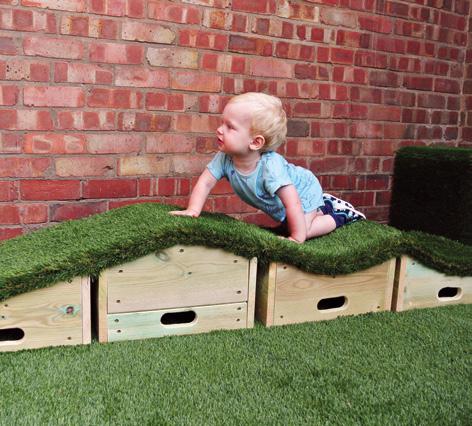
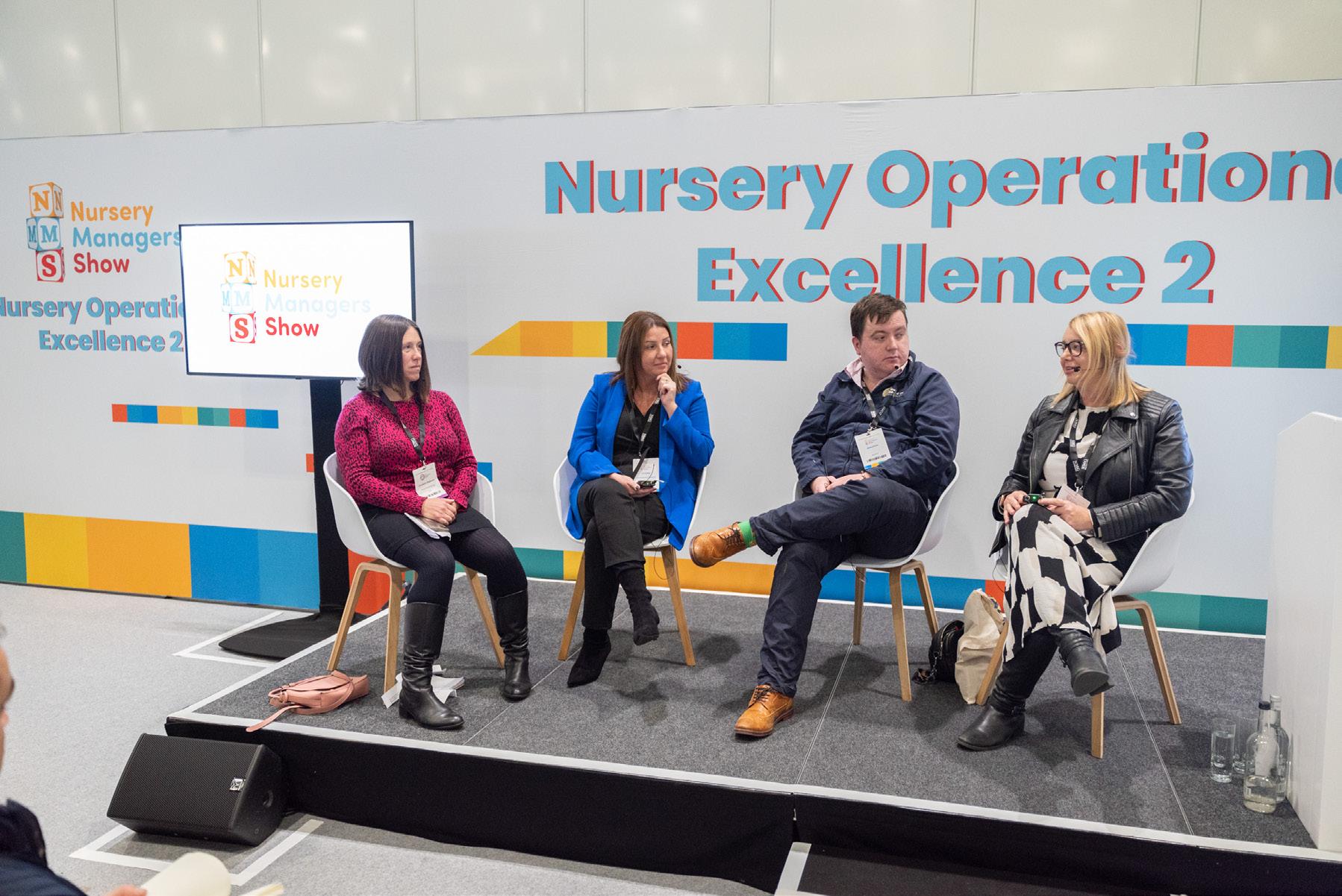
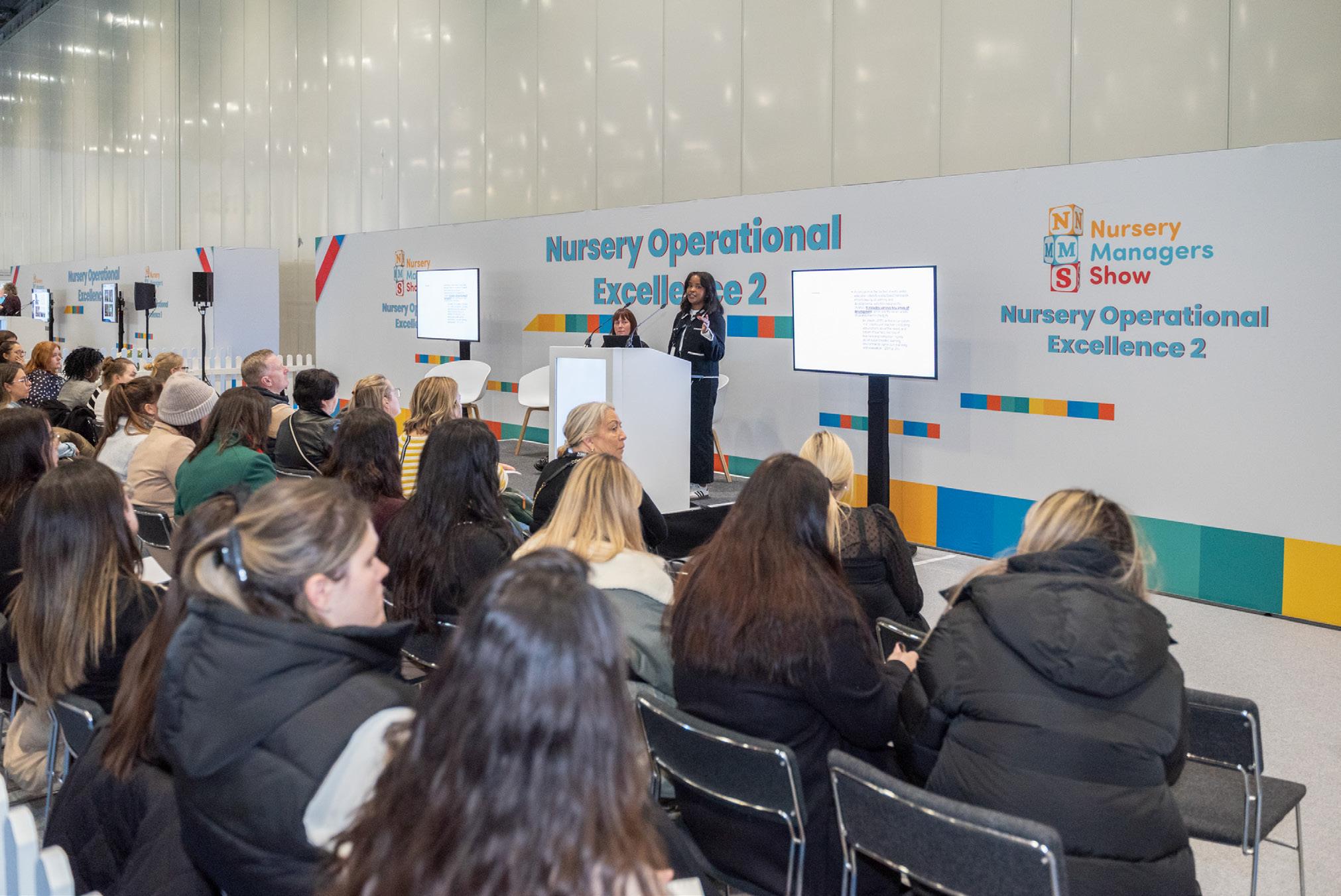
Over 4,000 in attendance

The funded training market for early years staff is an ever-changing landscape with several options available to nursery managers and learners, explains Karen Derbyshire, operations director at early years training provider Realise
Staff recruitment, development and retention have never been more important in the early years sector.
The new government policies around free childcare and the subsequent and looming influx of new children entering nurseries across the length and breadth of the UK has created a surge in demand rarely seen over recent decades.
Recruiting the right people and –more importantly – offering access to the right training programmes to help propel their career to the next level will be crucial in helping nursery managers solve the conundrum of dealing with the increased pressures on their settings.
Funded training does provide hope for nursery managers, offering a clear pathway for career progression for staff at a cost which is, broadly speaking, value for money when the final outcome is considered.
Below are the three main routes available to nursery managers to consider for their staff or for new recruits to contemplate as they look to move into the early years sector.
Apprenticeships have been the bedrock of early years training in recent years and it remains a key part of the training mix today.
There are many benefits to a nursery and its employees embracing apprenticeships, whether it be a Level 2 early years practitioner, Level 3 early years educator, the Level 5 early years lead practitioner or the recentlylaunched nursery manager qualifications.
An apprenticeship offers a fantastic opportunity for a business to give its employees an insight into the culture and environment it is seeking to create while


the on-the-job, hands-on experience is also an invaluable tool in helping people adjust to their new workplace or grow their career.
While the 12 to 18-month programmes require a level of commitment from both the learner and the nursery, the cost of the qualification is relatively low.
For nursery businesses with an annual wage bill in excess of £3 million and therefore mandated to pay into the
“Funded training does provide hope for nursery managers, offering a clear pathway for career progression for staff at a cost which is, broadly speaking, value for money when the final outcome is considered.”

Apprenticeship Levy, funding will come directly from those contributions.
SMEs are required to fund 5% of the apprenticeship cost which means they will pay between £240 for a Level 2 early years practitioner and £480 for a Level 5 early years lead practitioner.
Providing the employer is happy to pay this contribution, there’s no cost to the learner.
Free and flexible courses allowing individuals the opportunity to build up sector-specific skills and fast-track career progression, skills boot camps are a new addition to the early years sector with the Department for Education launching its first programmes this year.
Here at Realise, we have launched our boot camp remotely across all of England, with in-person delivery in four selected areas: Northampton, Liverpool, Slough and Kent.
Our boot camp is an ‘apprenticeship accelerator’ programme with individuals who complete the course – three weeks in person and six weeks online – being automatically able to fast-track to a Level 3 apprenticeship, a benefit to both learners by progressing their career and nurseries seeking to increase their ratio of qualified staff.
The main idea of our skills boot
camp is to help attract hundreds of new recruits into the sector but it’s also a viable option for staff currently working in early years settings as a pre-apprenticeship programme for those considering completing a Level 3 qualification.
Again, the nursery is asked to contribute towards the cost if one of its staff members begins a skills boot camp while employed – for SMEs this is £165 and for larger settings with more than 250 staff it is £495. For those not working in the early years sector when attending the boot camp, this course is free of charge.
An Adult Education Budget funds courses for the education and training of adult learners aged 19 and above.
Regions place the emphasis on different sectors at varying times of the year depending on skills shortages which need meeting, meaning not everywhere in England will offer early years Adult Education Budget courses at all times.
There are Level 2 and Level 3 diplomas available in early years which take six and nine months respectively to complete.
These programmes can be completed in a shorter time than an apprenticeship and without the need for on-the-job training or the completion of functional
skills in English and maths, although Level 3 learners will need English to be deemed full and relevant.
As well as allowing learners to upskill, it also provides the opportunity to specialise in specific areas, such as understanding autism.
These courses are free to both the learner and employer, with the only restrictions being availability of the course in a specific region at any given time.
There are other funded training alternatives which can be considered, such as study programmes, but there’s no one-size-fits-all approach. Each nursery setting and learner will have different priorities and requirements which will influence which route would be most beneficial.
Our commitment at Realise is to adopt a ‘right learner, right programme’ ethos where we discuss the bespoke requirements of each employer and learner before making a recommendation.
Whichever route you ultimately decide to go down, taking advantage of the plethora of funded training opportunities available for your staff could be crucial in helping your nursery and team thrive in the short, medium and long term.■
With recent changes to the EYFS and apprenticeship standards, there’s a lot to take in when it comes to early years qualifications. In part two of our series, NMT answers some of your most frequently asked questions.
Do Level 3 practitioners need a GCSE or equivalent in maths to count in ratio?
No, but Level 3 apprentices still do
From January this year, practitioners with a full and relevant Level 3 qualification no longer need maths GCSE or equivalent to count as Level 3 in the staff/child ratio, no matter when their Level 3 qualification was gained.
However, apprentices in all sectors need to have maths GCSE or equivalent in order to complete the End Point Assessment (EPA) of their apprenticeship and there is no exception for the Early Years Educator (EYE) Level 3.
Current apprentices, who started their apprenticeship before 1 April 2024 and who are unable to achieve their EPA due to not passing maths, can be awarded their Level 3 diploma and work as qualified in ratio as long as they have an English Level 2 qualification.
However, those who start their EYE apprenticeship from 1 April 2024 will no longer have this option, as the mandatory diploma has been removed from the Level 3 standards. This means apprentices will only gain their qualification if they achieve EPA.

Do nursery managers need a GCSE or equivalent in maths and English?
Yes, if they are a new manager or taking on a new role
Following changes to the EYFS, nursery managers employed on or after 4 January 2024 must hold a Level 2 maths qualification or achieve one within two years of starting the position.
Can I count someone who is studying for a ‘full and relevant’ Level 3 qualification as a Level 2 in ratio?

studying for early years teacher status could count as Level 3.
“Having confirmation from your training provider that the apprentice is on track and progressing well within their apprenticeship would also be evidence of competency.”
Yes, if you are satisfied they are competent and responsible
Since 4 January this year, managers have been given the option of allowing suitable students on long-term placements and apprentices to be included in the staff/ child ratios at the level below their level of study if they are satisfied that they are sufficiently competent and responsible.
So those studying Level 3 apprenticeships and students taking a degree that confers ‘full and relevant’ status at Level 3 could count as Level 2 in the ratio, and students
“My advice would be that the manager has a checklist based around the key elements of the Level 2 early years practitioner standards, to evidence the competency and responsibility of a student being counted in ratio at Level 2,” says Sophie Hayter, senior talent development partner at N Family Club and founder of Facebook group Early Years & Teaching Assistants Training & Qualifications. “Having confirmation from your training provider that the apprentice is on track and progressing well within their apprenticeship would also be evidence of competency.”
Is the NCFE cache Level 3 award in childcare and education ‘full and relevant’?
No
It is a genuine qualification, recognised by Ofqual, the government Office of Qualifications and Examinations Regulation, which regulates qualifications, examinations and assessments in England.

An award is a ‘nested’ qualification which means you can use it as a foundation to gain a certificate and then a diploma. However, by itself, the NCFE cache Level 3 award in childcare and education is only the first three units of the Early Years Educator, so would not be recognised as ‘full and relevant’ and would not qualify the holder to count as Level 3 in ratio. “It is a regulated qualification but it doesn’t give license to practice,” says Hayter.
Is it always clear whether qualifications offer a license to practise?
No
“There are many companies that offer unregulated training courses, which are not recognised by Ofqual,” says Hayter. “They might provide an opportunity to gain some underpinning knowledge of working in the early years sector, but if someone is looking for a qualified role within the EYFS, this will not enable them to do so. The way that these companies advertise these qualifications can be very misleading, the language they use often suggests that their course will qualify applicants to work in early years, which is not accurate. This then leaves employers having to inform the candidate that they are not actually qualified because the course that they have completed is not approved by the DfE. I receive countless posts in the Facebook group from managers who are in this position.’’
If someone has Qualified Teacher Status, can they be counted as Level 6 in ratios?
Yes, but managers need to decide whether they have enough early years knowledge
Anyone with Qualified Teacher Status (QTS) counts as Level 6 in ratios, which
means they can look after up to 13 threeand four-year-olds, as long as they are working with at least one other member of staff with a full and relevant Level 3 qualification.
However, this is a bit of an anomaly, as a person with QTS may not ever have worked with young children. “I contacted the Department for Education to query this, given that all other ‘full and relevant’ qualifications are early years-specific,” says Hayter. “The DfE said it is up to the employer to make a judgement on whether the teacher has the necessary knowledge to be considered as qualified within the EYFS.”
This puts the onus very much on the owner or manager to make the decision. “If the teacher has other qualifications or suitable experience working within the EYFS, for example they have worked in reception year, you can easily identify they have the necessary skills and knowledge,” says Hayter. “But you may not be able to say the same in regards to an applicant who has only ever taught outside of the EYFS. In these cases, managers may want to consider offering the individual additional training such as early years teacher training or a level 3 EYE.”
Is a master’s degree in early years full and relevant?
No
Although it seems counterintuitive, as we are used to thinking of people with a master’s degree as highly-qualified, a master’s degree doesn’t allow a practitioner to count as either Level 3 or Level 6 in ratio. If they don’t have another qualification they will be counted as ‘unqualified’.
“Master’s degrees are academic qualifications for those who already have a degree to focus on a specific area,” explains Hayter. “They aren’t ‘competency’-based
qualifications, so unless the holder has another qualification such as a Level 3 early years educator, an early years degree which has been assessed in practice, Early Years Teachers Status (EYTS) or Qualified Teacher Status (QTS) they are not qualified in ratio.”
Does the new Level 6 qualification
Early Years Educator Advanced Diploma in Applied Innovative Practice in Early Childhood Pedagogy and Care give a licence to practise?
Yes
The National College for Care and Education (NCCE) and national awarding organisation Training Qualifications UK (TQUK) have launched a Level 6
Early Years Educator Advanced Diploma in Applied Innovative Practice in Early Childhood Pedagogy and Care. The Department for Education has confirmed that the qualification offers a licence to practise at Level 3. The DfE has a policy not to list every individual Level 6 qualification that is ‘full and relevant’ at Level 3, instead setting out the criteria a qualification must meet. For this reason, the qualification is not listed, but the DfE has provided NCCE with an official letter confirming its ‘full and relevant’ status.
The diploma was developed to act as a bridge between vocational qualifications at Level 5 and academic qualifications at Level 7. Students must already hold a Level 5 qualification, but this does not have to be in early years. “We also welcome allied sectors, for example a student may hold a foundation degree in health and social care or education,” says Sam Ballington, director of teaching and learning at NCCE.
The NCCE says the diploma, which is worth 120 credits, is the equivalent of a top-up degree and can therefore be used a stepping stone to Early Years Teacher Status, QTS or another Level 7 programme. “We can support with applications to EYTS,” says Ballington. The awarding body has applied to gain funding approval for the qualification so learners can access Advanced Learner Loans, which will shortly be replaced by the Lifelong Learning Entitlement, but currently learners must fund themselves.■
Apprenticeships are key to recruitment and development – and they’re not just for school leavers
Family First are big advocates of team members completing apprenticeships and learning while they earn, with more senior staff now taking the opportunity to boost their careers with new qualifications.
It has never been more important to recruit and retain the best team members you can in the nursery industry.
One way that Family First invest in their teams across the country is offering apprenticeships. These have benefits for the nurseries in their group, and the people undertaking them.
While practitioners have the chance to learn while they earn and gain valuable qualifications, managers can develop their own staff.
Since Family First was established in 2019, the group has had almost 150 people go through an apprenticeship programme – and are keen for even more to do so in the coming years.
Early Years Specialist Michele Falconer is Family First’s lead on apprenticeships, and works closely with specialist training providers Realise, and the learners as they progress through their qualifications.
“It’s amazing to see when people do well, achieve what they want to, take
“It’s amazing to see when people do well, achieve what they want to, take on more responsibility and be more confident day to day,”
on more responsibility and be more confident day to day,” Michele explained.
“The best part of my job is meeting people and working out how they want to learn and the best way to help them develop.”
Michele explained the support team at Family First were always to pass on their own knowledge to colleagues.
“Our Early Years Team has a wealth of experience and skills we can share,” she added.
“If we can help upskill and train our own staff then they will be brilliant practitioners.”
As well as a proud record of Level 2 and 3 apprentices designed for people early in their careers, Family First also support more experienced team members who want to develop themselves with Level 5 Early Years Practitioner and Nursery Manager apprenticeships.
Michele said they were perfect for people who wanted to become good leaders as well as exceptional while working with children.
“Managers will often get into that position because they are brilliant on the childcare side of things,” she said.
“What they lack is the experience in things like marketing, budgeting and other commercial aspects.
“Developing people and investing in them means you can help them grow, this in turn supports retention as people see a clear career progression pathway.”

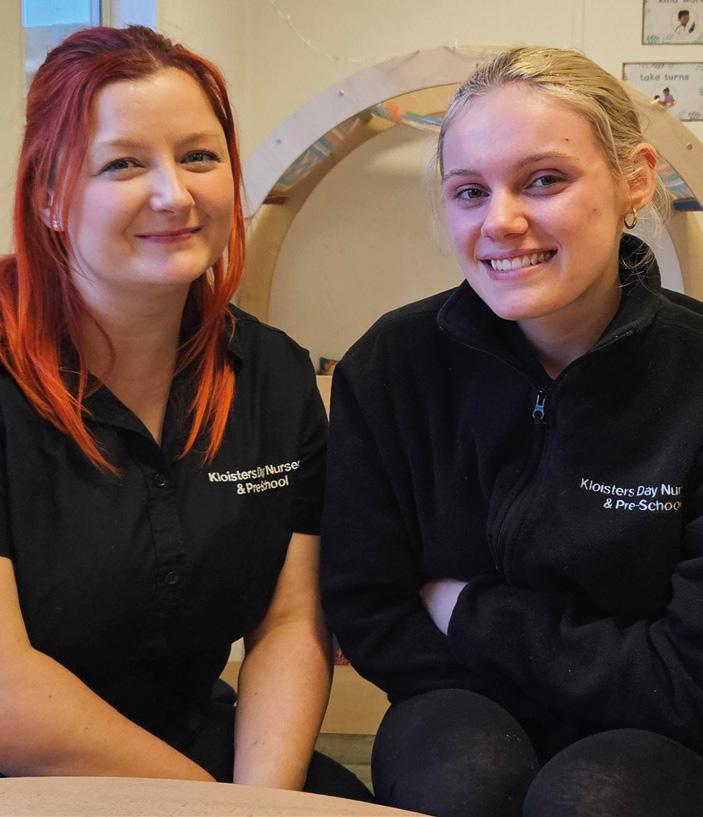
One of these combining an apprenticeship with a management position is Ashleigh Elmer, 33, Nursery Manager at Kloisters Kindergarten & PreSchool in Rochester, Kent, who is closing in on her Level 5 qualification.
“I felt like I needed a bit of a push, so I asked about it and Family First organised it for me,” she said.
“I started in January 2023, when I was a Deputy Manager, and have really enjoyed it.
“For example, it has given me the skills to introduce a new curriculum that I am confident is brilliant for the children and will be suitable for Ofsted.
“It has also pushed me to be a mentor for others in the nursery.
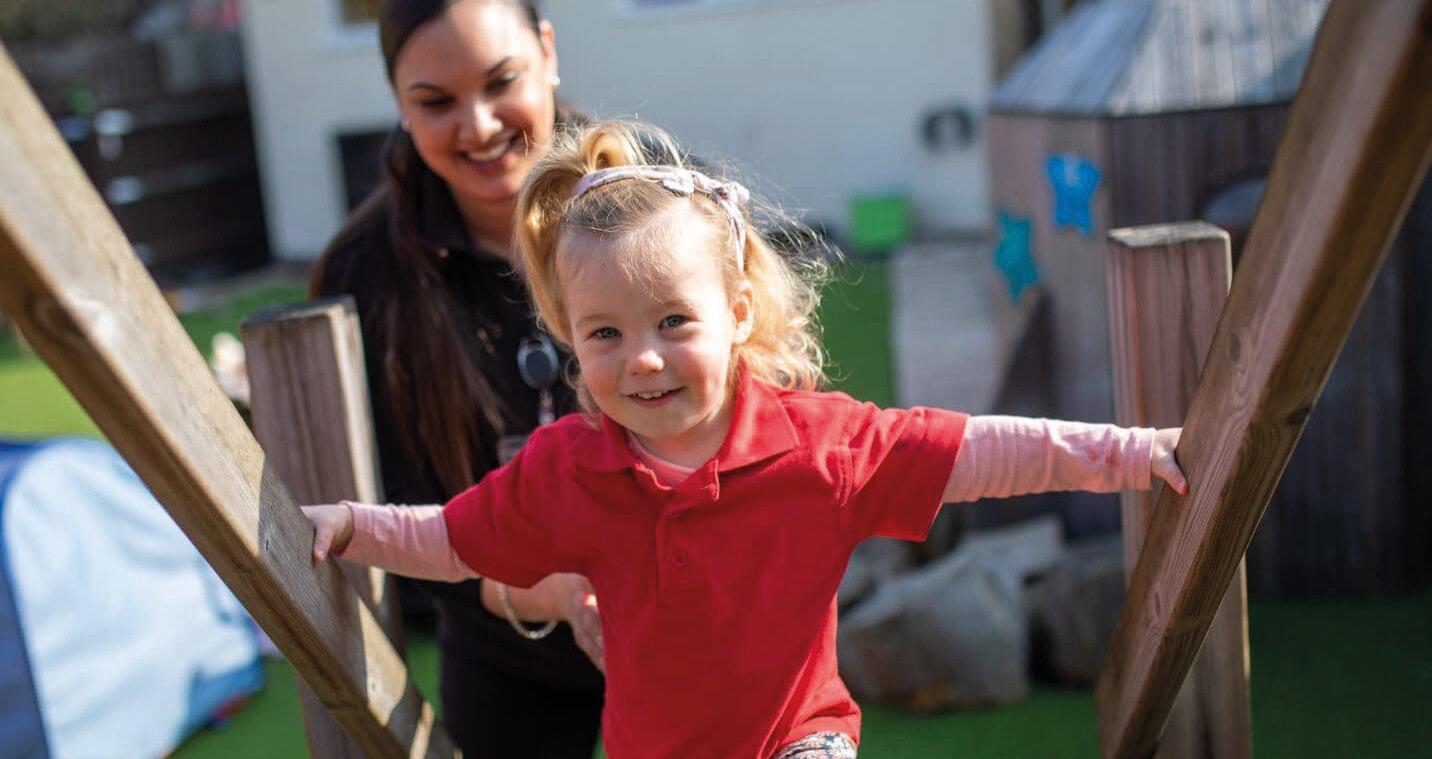

“We have now got two other people doing their own Level 5 qualifications – a Deputy Manager and a Room Leader.
“I am a couple of phases ahead of them so can tell them what to expect and how to prepare.
“It is also teaching me leadership skills and techniques which can help me support other members of the team if they need help.
“Before we were taken over by Family First, I didn’t really know if I had it in me to be a manager, but this has given me a lot more confidence in myself.
“The workload has been manageable – there are a lot of tasks I can complete in my working hours and things like assignments I do in my own time.
“My tutor is incredibly supportive when I do need help.
“I would absolutely recommend an apprenticeship for anyone. It doesn’t matter how old you are.
“It has given me a lot of confidence, especially when I am showing prospective parents around the nursery.
“I know that I am a strong leader and it helps me sell the nursery as a great place to be.”
Ann-Marie Martet, 45, Maternity Cover Manager at Woodberry Day Nursery Fawley, in Hampshire, is also completing a Level 5.
She went from not knowing her apprenticeship existed to starting it within a matter of weeks and hasn’t looked back.
“Family First held a Deputy Managers Conference in August 2022 and there were representatives from Realise there who were promoting it,” she said.
“Quickly, I realised it was something I was interested in doing and thought it was something which could really help me along with my career.
“I’ve been in childcare for 26 years with most of those spent at Play Away Day Nurseries in Totton.
“I started off as a Nursery Nurse, then became Team Leader in the baby section and worked my way up to Deputy Manager and I was Third-in-Charge.
“Then in October last year I was informed about this position before starting early in 2024.
“What the apprenticeship has done is improved my self-confidence. It was definitely lacking before.
“It has made me realise that I do have the skills, I know what I am doing and that I am good at my job.
“It hasn’t always been easy, but I would definitely recommend it to anyone looking to broaden their career.
“It helps build on your knowledge and gives you new opportunities which you wouldn’t necessarily think of.
“I have team members in our setting who are thinking about apprenticeships and I am definitely encouraging them as much as I can.”
Karen Derbyshire, Operations Director Early Years at Realise, said: “In the two years we have been partnering with Family First, they have developed an offering for their employees from Level 2 through to Level 5, creating pathways for those that want to move into management and those that want to continue their work impacting outcomes for children.
“There really is something for anyone looking to upskill their knowledge and skills.
“Having a dedicated Early Years Specialist in Michele means apprentices get bespoke training to complement what we deliver at Realise, which enriches their experience, making them fantastic practitioners which is reflected in the number of learners that achieve a distinction grade in their endpoint assessment.
We are really proud to partner with Family First and support the next generation of practitioners, educator and managers.”■
In our series showcasing the sector’s nursery managers, we find out more about Donna Reid, nursery manager at My First Friends Wylde Green, Sutton Coldfield and winner of ‘Nursery manager of the year’ at the National NMT Nursery Awards
What was your route to becoming a manager?
From a very early age I knew that I wanted to work in early years. As soon as I left school, I decided that an apprenticeship was the best path, as to learn on the job was always important to me. Since qualifying for my Level 3 in 2010 it has been a very natural progression for me gradually working my way to manager in 2019, after being deputy manager for three years.
What are you most proud of achieving as a manager?
My first Ofsted inspection as a manager back in 2022, the team and I were just thrilled to be awarded an Outstanding rating. And, of course, winning NMT’s ‘Nursery manager of the year’ was a huge accomplishment in such a highly competitive category. I still can’t quite believe it.
What’s the best thing about Wylde Green nursery?
We are an open plan nursery and have mixed ages of children together, aged between one and five. The open plan really benefits the children and their development and promotes their independence. The younger children thrive, learning from the older children around them, and the older children develop care and compassion towards
“My first Ofsted inspection as a manager back in 2022, the team and I were just thrilled to be awarded an Outstanding rating.”
the younger children. The free flow environment allows children to make choices about how they spend each day. We have a lot of siblings and cousins that attend the nursery, and it is lovely that they get to spend time together throughout their day even though they are different ages. This also benefits the staff and their professional development; they get to work with all ages of children consistently and I feel it has made us all a lot stronger and more confident practitioners.
What’s the best training you’ve had?
I am very passionate about supporting children with special educational needs and the importance of early identification, which is crucial to removing educational barriers. So I would have to say all the SEN training that I have completed over the years – it is difficult to pinpoint just one. They have all given me the knowledge, confidence, and tools to help support children to the best of my ability.
What’s the most challenging part of being a nursery manager?
I think as a manager, you have so many different hats to wear, sometimes there is just not enough time in the day to do everything.
Which three people would you invite to a dinner party?
Dolly Parton, as I love country music, Kevin Hart for comedic value and Tom Hardy for aesthetic reasons – and of course he is a very talented actor as well.
What do you do to look after yourself when things get stressful?
I think it is important to make the most of your free time, spending time with the

special people in your life, socialising, having adventures. And for me, travelling is good for the body, mind and soul.
What is the one thing you would change about the early years sector?
I wish the sector was more recognised as a whole, it is very undervalued. It is the least well-funded phase of education but arguably the most important. The pay scale unfortunately does not represent the dedication and hard work of those in the sector.
What three things would you take to a desert island?
My Kindle and something so I could listen to music and definitely suncream as I do tend to burn.
What advice would you give your younger self?
Keep thriving, keep pushing, persevere. Every day is a new opportunity, don’t wait to make things happen for you –take action.■


Whether it is sharing ideas, supporting their teams or getting involved in the local community, nursery managers across the country are going that extra mile. We round up some of the things you’ve been getting up to

At the beginning of the year, nursery managers at N Family Club embarked on their annual Mountains Trip, this year heading to the picturesque village of La Clusaz in France. Following a goals planning day the week before, team members jetted off for a weekend of adventure, relaxation and team building. On the agenda was celebration of the previous year’s successes, followed by two days of unwinding on the slopes.
Team members of all abilities had the opportunity to ski, and novices became more snow-savvy as the weekend progressed, some even leaving the nursery slopes for a cable car to the top of the mountain, with their instructor’s encouragement of course. Those who preferred to remain out of ski boots enjoyed a tranquil morning at the spa with views of the snow-capped mountains, before everyone enjoyed a group lunch and apres-ski.
Chelsea Biddle, nursery manager at N Angel, said: “I’d have to think long and hard about what the highlight of my trip was, as it was such a blast, with the best team.” The annual trip allows managers to connect, relax and recharge as part of an enhanced manager’s benefits package, which also includes bonuses, additional annual leave allowance, the N Partnership
share scheme, and leadership events throughout the year.
Becca Leigh, manager and special educational needs and disabilities coordinator at Kids Planet Knutsford, found herself acting as her boss’s boss when Kids Planet chief executive Clare Roberts stepped into the shoes of an apprentice to mark National Apprenticeship Week. Roberts became an apprentice for the day at Kids Allowed Knutsford, where she undertook a full induction and showround, training with a tutor and risk assessments, and spending time with the children.
Wearing a Kids Planet practitioner uniform Roberts was able to have a oneon-one session with tutor Nathalie Glaze at the Kids Planet Training Academy,
situated at the Knutsford site. “It was lovely having Clare here at Knutsford for the day,” said Leigh. “It was great to see her step into an apprentice’s shoes and see the process in which the apprentices are inducted into Kids Planet.”

The teams at Happy Days Nurseries were sharing the love during February through the medium of Staff Appreciation Doors and Walls, which saw staff plastering doors and walls with notes explaining why they love working in childcare, and why they love their team and colleagues. “I am passionate about celebrating my

team’s achievements and contributions and the Happy Days Appreciation Month provided the perfect opportunity to expand on this,” said Ashley Webb, nursery manager at Happy Days, Droitwich. “The staff appreciation door has been a hit with the team as it enables them to share positive experiences with the whole team and provides a public place to give a shout out to their colleagues. The team feels appreciated and motivated, and it boosts the morale of the whole nursery. As a new, recently opened nursery, this is the first time we have done this, but Happy Days are always sharing ideas and initiatives to celebrate success, including their annual Appreciation Month every February.”
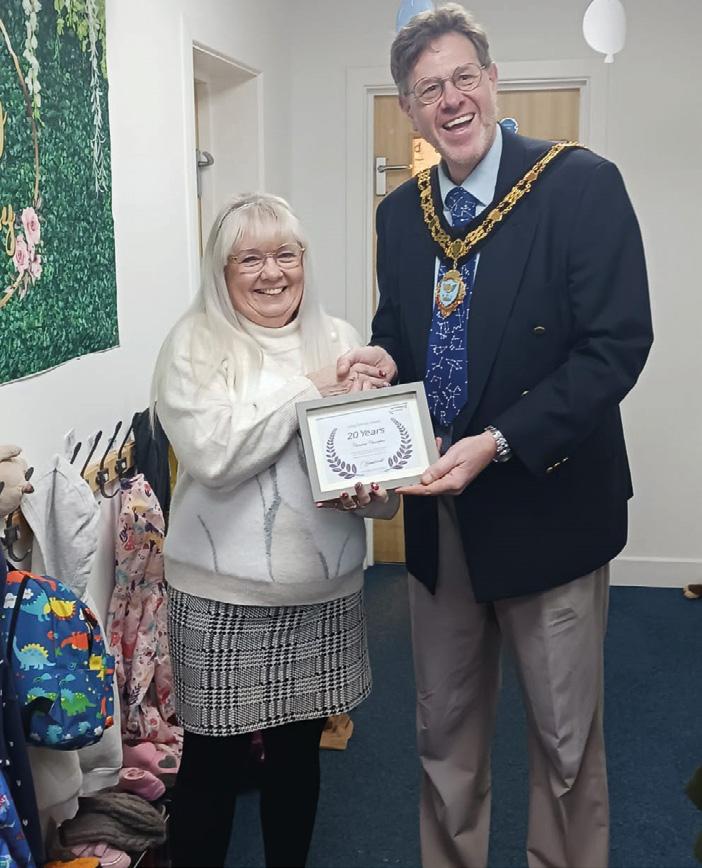
Tops Day Nurseries celebrated the 20year career of Chris Champion, who started at Tops Musgrove Nursery as a room supervisor. She became deputy manager, then manager at the Mini Mariners setting, where she achieved an Outstanding grade from Ofsted. Champion has recently transitioned to the role of agency assistant in the Tops Day Nurseries people team.
Champion was presented with a certificate by the mayor of Taunton Nick O’Donnell. Abbie Armes, agency manager at Tops Day Nurseries, said: “Chris is an invaluable member of the Tops family, demonstrating exceptional dedication and improvement in various skill areas. Her positive spirit and unwavering support make her an integral
part of our team.”
Champion said: “I have made strategic decisions, managed budgets, and always ensured a nurturing and educational environment for children, sharing best practices and providing guidance to others to contribute to the company’s overall growth. My leadership and organisational skills have always been recognised. The fact that people within the company have believed in me and supported my career progression has made a significant impact on where I am now. I am grateful for all the support I’ve ever received.”
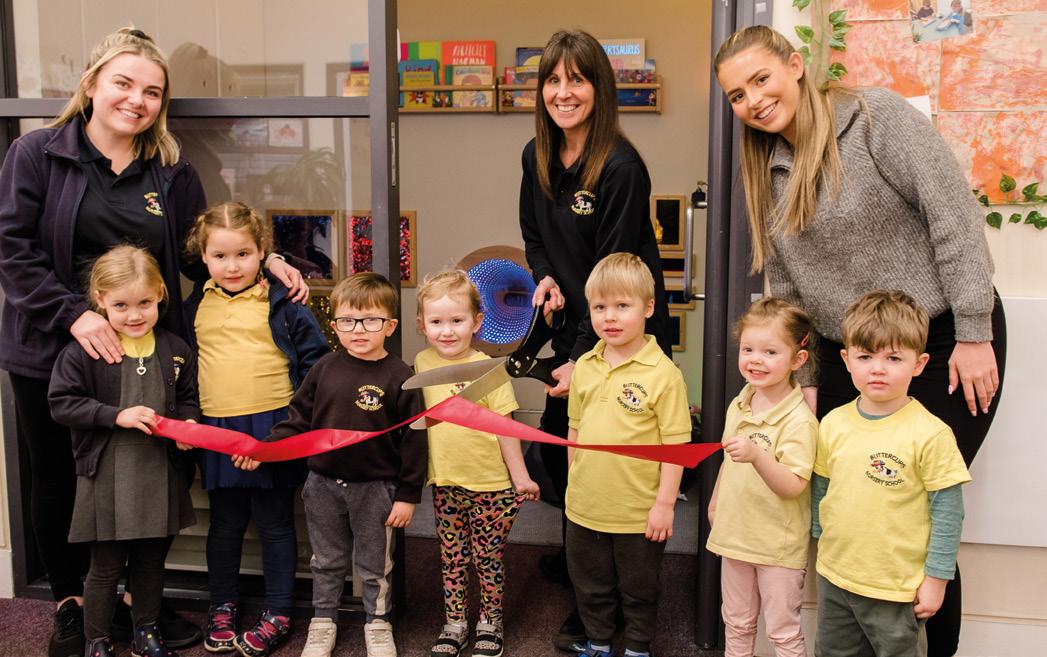
NDNA Cymru provides resources to settings looking to introduce the Welsh language, including free factsheets and support from its Welsh language team to help with Camau, a Work Welsh course bespoke to the childcare and early years sector. A private Facebook group includes sentences of the week, songs and stories, as well as information about key dates.
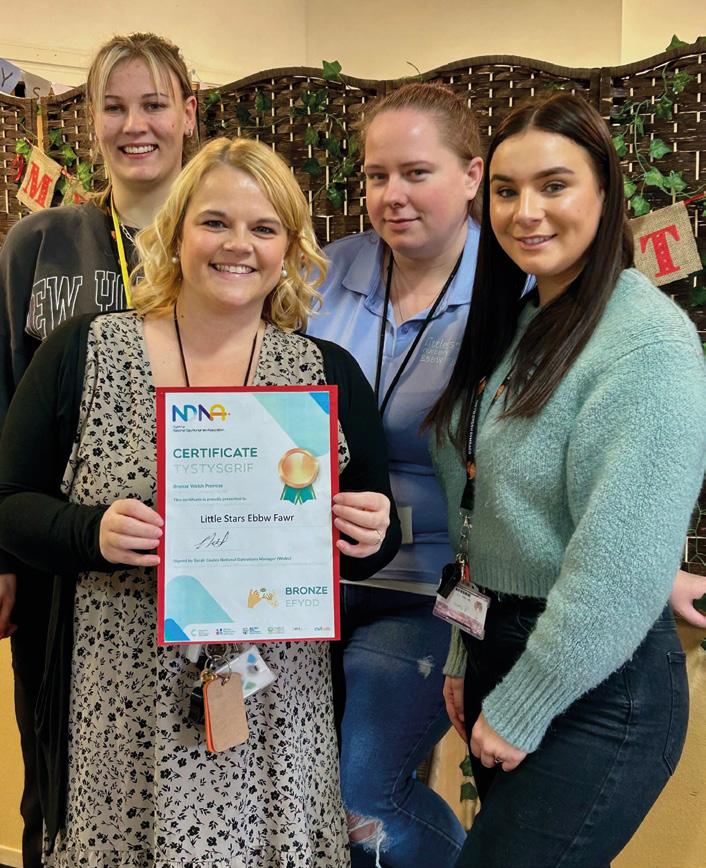
Natasha Thomas, nursery manager at Little Stars Nursery Ebbw Faw in Ebbw Vale, Blaenau Gwent, is pictured celebrating with her team after the setting succeeded in completing the National Day Nurseries Association (NDNA)’s Bronze Promise. The certificate shows that staff at the settings have worked hard to implement more Welsh language into the setting and provide children, staff and families with more Welsh language opportunities. Also in the picture (above) are Xavier Francis, who acts as ‘Welsh champion’ in the setting, operations manager Laura Baker and deputy manager Ellie Turley.
Helen Akerman, owner and manager of Buttercups Nursery School in Whiteley, Hampshire, is celebrating after opening a new sensory room thanks to obtaining £1,500 from developer David Wilson Homes. Buttercups has now been able to open a calming and safe space for its children, away from busy areas.
“Being in the PVI sector it is often difficult to raise extra funds to support our children’s learning and development,” said Akerman, adding: “Our new sensory room will offer a place for our children to go to if they are feeling overwhelmed, anxious or stressed, and will also help them to understand and cope with their feelings, which is so important. They’re all loving their new space.”
As well the new sensory room, the donation has allowed the nursery to buy a second cart to help staff transport resources to its weekly ‘woodland morning’. “Being able to take our children outside to learn about nature is a crucial part of their development,” said Akerman. ■
We know managers are doing fantastic things all around the country, If you have an achievement or a new initiative you’d like to share, contact: charlotte.goddard@ nexusgroup.co.uk
Ultra-processed food has been in the headlines for a while, but a flurry of contradictory reports makes it difficult to know what to avoid. Charlotte Goddard helps nursery managers get up to speed
Although we seem to be surrounded by information about ultraprocessed foods (UPFs), it’s difficult to understand what they are exactly, and how much of an impact they have on young children. There’s no agreed definition on what makes something ultra-processed, and there is debate over whether all ultra-processed foods are harmful.
The Soil Association, which published a report in December looking at tackling children’s ultra-processed diets, says UPFs are made using industrial processes and additives that wouldn’t be found in a household kitchen. Basically, if there’s anything on the ingredients list that you don’t have in your store cupboard, it’s probably UPF. This means that many products that we might not think of as ultra-processed can be defined as UPF, such as store-bought pasta sauce, fruitflavoured yoghurt, low-fat margarine and even baby food.
In the UK, UPFs make up 67% of the energy intake of children under the age of 14. High UPF consumption by children has been linked to poor health outcomes, including increased body weight and tooth decay. Early exposure to UPFs shapes children’s longterm food preferences, increasing the risk of developing obesity, type 2 diabetes, dementia, heart disease and cancer later in life.
“UPFs have grown to dominate people’s diets, blindfolding children to the diverse flavours, colours, and textures of whole foods,” says Oona Buttafoco, senior policy officer at the Soil Association, which runs the Food for Life scheme which encourages schools and nurseries to serve healthy, sustainable food. “This not only puts children’s immediate health at risk, but also promotes a detrimental relationship with food that can persist into adulthood.”
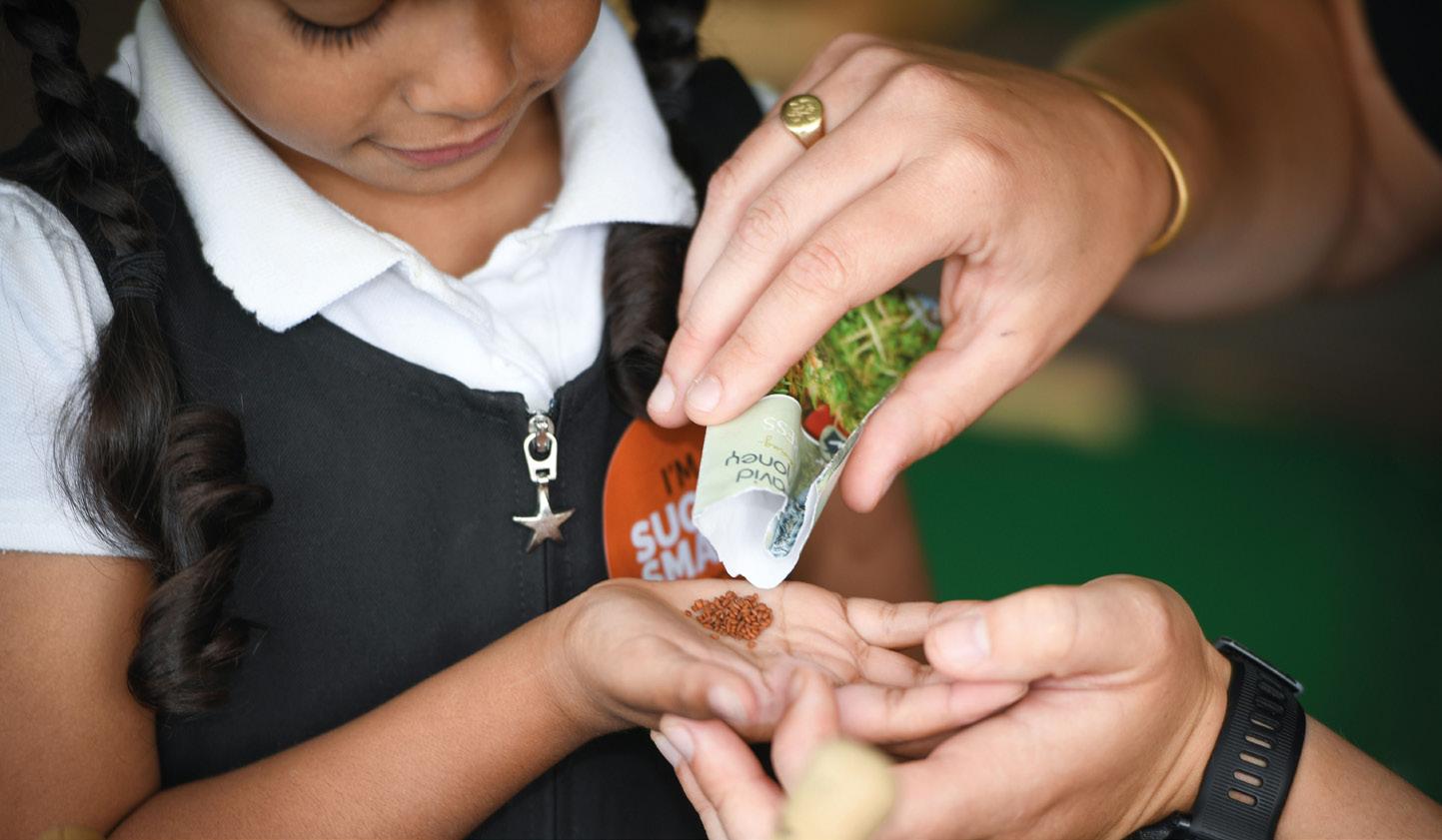
However, recent research suggests that not all ultra-processed food is bad for you, and that some are worse than others. While some nutritionists suggest avoiding all UPFs as far as possible, the study suggests that bread and cereals actively reduce the risk of developing cancer, heart disease and diabetes, despite being ultra-processed.
“We try to focus on reducing the prevalence of UPF in the diet overall, by increasing the prevalence of freshly prepared food, rather than avoiding individual products,” explains Buttafoco.
What is the role of nurseries?
Nurseries and other early years settings can play a pivotal role in supporting children to develop a healthy and beneficial relationship with food. “We know those first thousand days in a child’s life, for example, are crucial for the development of their taste preferences and for their growth, wellbeing and health later on,” says Buttafoco. “There is a value in bringing really good food to kids at that age, and also providing education about food, because it really sets them up for better health outcomes later.”
The Food for Life scheme supports nurseries to increase the proportion of freshly prepared food they serve, which
means that UPFs are reduced. “If you are a Food for Life awarded nursery it means you can demonstrate that 75% of the food you serve is freshly prepared,” says Buttafoco. “There are also criteria about avoiding additives and trans fatty acids.” Food for Life has a number of free videos on its website which can support settings looking to reduce UPFs.
What can nurseries do?
There are some simple swaps that can be made in a menu, such as replacing flavoured yogurts which have added sugar or sweeteners with plain yogurt, adding chopped fresh, frozen or dried fruit for sweetness (or see the recipe box for a lassi recipe).
Educating children about healthy food from an early age is also important. “We know children can have quite strong taste preferences which are not always in favour of fresh fruit and veg,” says Buttafoco. Charity TastEd offers free training and resources to early years settings in the UK, with activities that have been developed in collaboration with EYFS practitioners to ensure they are engaging for children and simple to deliver.
“I have heard some amazing stories from TastEd sessions in nurseries, with

children who were initially very reluctant presented with fresh fruit and vegetables, and the difference between their attitude at the start and end of the session,” says Buttafoco. “Nursery staff will report it is not just a one-off impact.”
Getting children involved with growing food also helps. “There is food children wouldn’t necessarily eat if it was bought from a shop, but they get really invested when they have grown it,” says Buttafoco. “They see huge value in trying to incorporate it in as many recipes as possible, they will say it tastes better –there is a different relationship to food when it is grown on site.”
How can settings support parents?
In some settings managers may be dealing with parents who are well-informed about nutrition, and keen to find out what the nursery is doing to avoid serving UPFs. However, many parents, especially those who are cash-poor or time-poor, turn to UPFs because they are convenient, quick and cheap, or because they know their children will eat them and they don’t have time to persuade them to try other things. While settings may be keen to share healthy eating tips with their families, parents may feel attacked and defensive, or worry that their child won’t eat what’s on offer at nursery.
“It is tricky because those foods are designed to be hyper-palatable – some say addictive – and they are really practical, they are often more affordable than other
Lassi – serves four
A lovely cooling drink that goes well with curry recipes
Ingredients (allergens in bold)
• Two ripe nectarines or clementines
• Eight to ten raspberries
• Two tablespoons clear honey
• 500ml full fat yoghurt
• 150ml milk
options,” says Buttafoco. “We are very conscious of those challenges. There is a lot of involvement of parents in Food for Life, so nurseries will do cooking activities with parents, and share recipes that are practical, affordable and use seasonable fruit and veg as much as possible, to shift away from those processed foods. Those products might still be in there, but it is just shifting the balance as far away as possible.”
Is avoiding UPFs expensive for nurseries?
Managers are often concerned that freshly produced meals will break the budget. “That is often an initial hurdle, but we are able to support nurseries to make changes to their menu while staying within budget,” says Buttafoco. “If they can’t replicate something they would have had from a processed source as a freshly
Method:
1. Peel the nectarines, discard the stones, and chop the fruit into chunks. Put them in the blender.
2. Add raspberries and honey.
3. Add yoghurt, put the lid on and whizz until smooth. If it’s too thick, add a little milk.
4. Pour into glasses and serve chilled. Thanks to Food for Life for the recipe. Find more recipes at foodforlife.org.uk
prepared meal, we help them transition to something else. It’s helpful that the recipes we are able to help them develop or recommend are tried and tested, we know go down really well with kids. Local sourcing is a big part of the Food for Life ethos, and if settings can switch to a local supplier that can help with the cost.”
Further reading
Ultra-processed foods (UPF) in the diets of infants and young children in the UK: First Steps Nutrition firststepsnutrition. org/upfs-marketed-for-infants-andyoung-children
What are ultra-processed foods? The Soil Association, soilassociation.org/ media/26694/upf-faqs.pdf
EYFS food activities: TastEd, tasteeducation.com/eyfs
Food for Life: foodforlife.org.uk/ schools-and-early-years ■
Almost all nursery practitioners have experienced pain in the workplace, with back pain a particular issue, according to new research. Charlotte Goddard finds out what managers can do to alleviate the problem
Back pain is a growing issue in the workplace. A survey carried out by employee health plan provider Simplyhealth found that 27% of respondents said they had suffered back pain at work in the past year, with more than eight million sick days taken because of back pain alone.
In early years, the situation is even more acute, with many practitioners finding that environments designed to be optimal for children’s development are less than optimal for their own health. Soon-tobe-published research undertaken by the University of Derby in collaboration with the Early Years Alliance, the National Education Union, and Jolly Back, a company focused on supporting the health of adults working with children, found that an astonishing 98% of the 196 participants reported pain associated with carrying out work-related actions. The lower back was the most reported painful area (89%). The research, which is currently in pre-print, found that the average duration of pain was one to two weeks.
Stooping over, working at low height or floor level, and lifting children and equipment, have all been shown to have a negative impact on musculoskeletal health. Musculoskeletal disorders include back, neck, hip and knee pain, joint injuries and muscle strains. The research found that the longer someone worked
“I find it strange we put so much effort into making nursery environments safe and productive for children, but that doesn’t transfer to the people who deliver the services.”
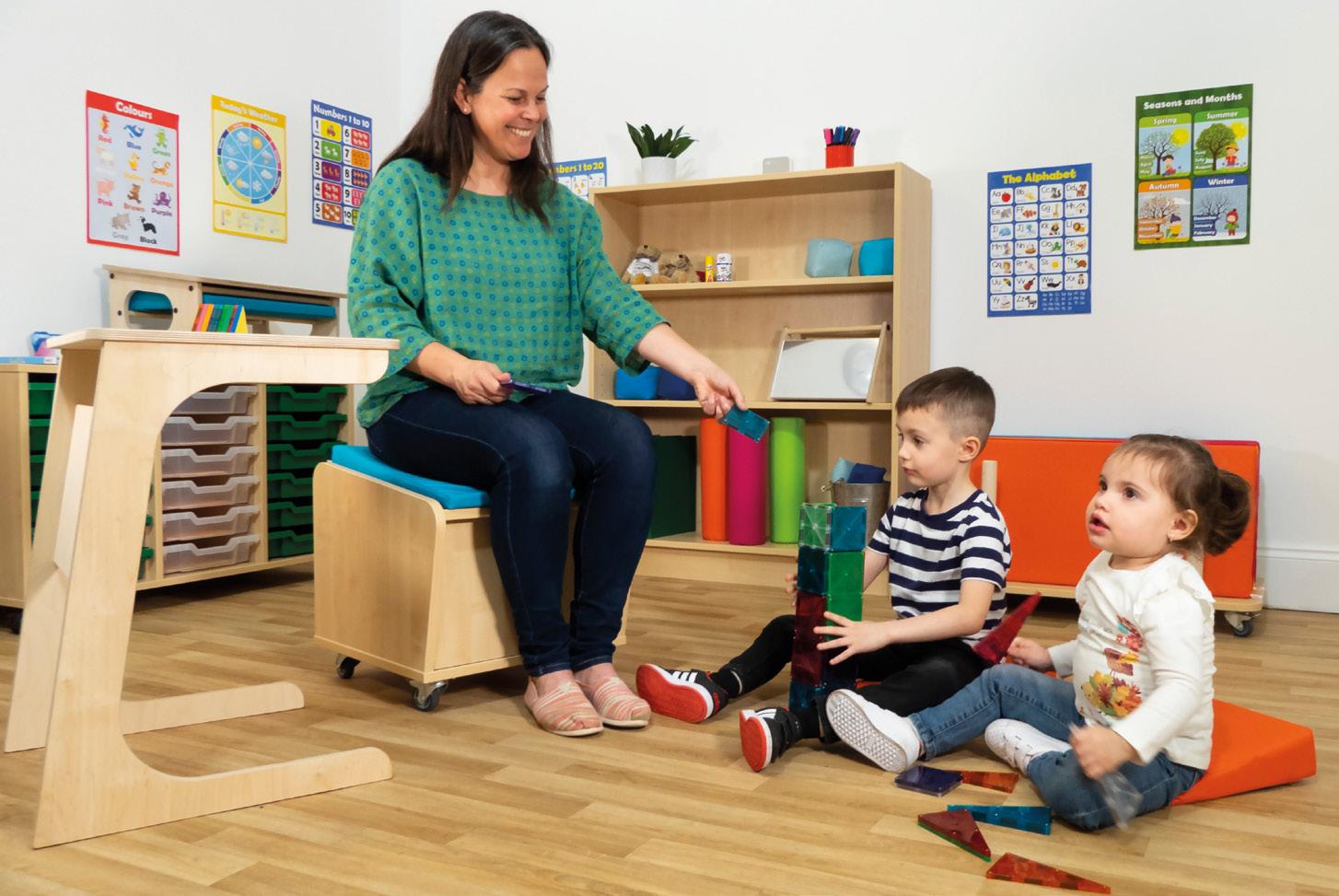
in early childhood education, no matter how old they were, the more likely they were to experience pain in more parts of the body. “I have spoken to practitioners who couldn’t go upstairs any more,” says Alistair Turvill, lecturer in early childhood studies at the University of Derby. “They had done so much damage to their body by working in early years.”
The researchers looked at differences between practitioners and nursery leaders. While both groups said they had to carry out potentially risky actions, such as lifting children or sitting at small desks, practitioners were carrying out around 25% more of these demands, and faced the greatest risks. Managers were significantly more likely than practitioners to report being aware of measures in their setting which could promote musculoskeletal health, and practitioners were more likely to say there needed to be improvements.
The University of Derby has launched Project SMARTey (supporting musculoskeletal awareness, research and training in the early years). This includes
musculoskeletal wellbeing workshops for undergraduates studying teaching, childhood studies and SEND as they prepare for placements and future careers.
“I find it strange we put so much effort into making nursery environments safe and productive for children, but that doesn’t transfer to the people who deliver the services,” comments Turvill. He adds that “enabling environments” for children are often “disabling environments” for early years workers.
Lorna Taylor is an occupational health physiotherapist and founder of Jolly Back, which provides products which improve posture, comfort and musculoskeletal health. “In nurseries everything is geared around the children and the children’s environment, but we are not considering the physical health of the staff,” she says.
“Given the climate, we need to be thinking about how we can keep good staff,” says Taylor. The University of Derby found that unsurprisingly, practitioners with more intense or more frequent pain were more likely to take days of sick. Practitioners with more frequent pain,
more bothersome pain, and pain in more parts of their body, were more likely to be thinking about leaving the sector entirely.
People who thought there should be more protective measures in their workplace were also more likely to be considering leaving the sector. “I get people calling me in tears saying they don’t know how they are going to physically work to retirement age, and they can’t afford to stop working,” says Taylor. “That is an awful situation to be in.”
Practitioners experiencing pain are also more likely to suffer from mental illhealth, and less likely to be able to provide high-quality childcare and education. “I worked with a school in Nottingham where a member of staff had chronic back pain,” says Taylor. “We got low, mobile chairs for everyone. After this, the school bursar said there had been fewer parents complaining about the member of staff, because she felt better and had more patience with the children.”
Given the scale of the problem, it’s important that managers look at what they can do to tackle it. “Many managers are not currently addressing this issue,” says Taylor. “I think there are some illegal practices happening in some settings, in terms of staff not having manual handling training and not knowing how to lift children and equipment – that needs addressing urgently. Your highest risk factor of having back pain is already having had it, so prevention is key.”
Ensure that the staff induction process includes manual handling training that is specific to early years. “Some settings will offer training on how to move boxes, but not on how to lift children,” says Taylor. “If you were working in other sectors like construction or healthcare it would be unheard of – in fact it would be illegal –to start work without being shown how to move and lift.” Students on placement should also undergo training.
Encourage staff to speak up
Have a reporting system in place for aches and pains and ensure practitioners know who to speak to. “It is possible
practitioners are not sharing their aches and pains, because they think that everyone has got them, or they think if they don’t step up to take on tasks despite their pain, nobody else is going to do it,” says Taylor.
Nursery design
Think about the layout of the nursery. Baby rooms are often located upstairs, perhaps so older children can take advantage of free-flow outdoor access. However, this may mean staff having to carry children up and down stairs.
Seating, furniture and equipment
Practitioners should not be sitting on chairs designed for children. However, the solution to that is not to remove chairs completely. “I have heard of settings where there are no chairs for staff, they are not supposed to sit down at all,” says Taylor. “This is not sustainable, staff need to rest.”
Taylor suggests using mobile furniture for staff, even though managers sometimes feel this represents a risk to children. “I know managers say if furniture moves, children will move it, but they are able to learn certain equipment belongs to the teacher,” says Taylor.
Staff should not be regularly changing children’s nappies on the floor. Look at nappy changing units that children can climb onto themselves if they are old enough, to reduce the amount of lifting staff have to do. Make sure staff have access to an adult-height sink and if not, place a washing up bowl on a higher surface.
Encourage staff to exercise
Being overweight and obese are associated with increased musculoskeletal symptoms.
“Strengthening and flexibility exercise are key,” says Taylor. “It is a physically demanding job and often staff are tired at the end of the day but if you don’t make time for exercise now you will have to make time for illness later.”
Some nursery groups might include gym membership in their employee perks, but not everyone will be able to run to this. Others might offer the opportunity to exercise together, point staff to local

exercise groups, or provide information about the benefits of exercise and diet.
The more often a practitioner has to perform the same action, the greater the risk. “Look at rotating staff around so they are not always doing the same thing,” says Taylor. If a practitioner is holding, lifting or carrying a child they should think about changing sides, so they are not always carrying on the same side. If a nappy changing unit is stuck against a wall, so staff always have to twist in the same way when putting a child down, think about repositioning it.
If staff are giving bottle feeds, make sure they are comfortable and well-supported before they start, because it’s difficult to adjust position halfway through.
Give children more independence
Let the children move and adjust their position themselves rather than stepping in to lift them. For example, give them time to get down from a climbing frame rather than picking them up.
Further reading
Awareness and Prevention of Back Pain and other Muscoloskeletal Disorders in the Early Years Workforce, Early Years Alliance: eyalliance.org.uk/back-pain Manual Handling at Work, Health and Safety Executive: hse.gov.uk/msd/ manual-handling
SMARTey project, University of Derby: derby.ac.uk/research/showcase/ musculoskeletal-health-early-yearsworkforce/■
Nursery group Grandir UK has acquired Happy Tree Nursery in the London suburb of West Drayton.
The nursery operates from a purpose-built property featuring a large enclosed garden. It was opened in 2010 by Kay Patel and Majella McElwee.
Grandir UK now operates 72 settings across the Midlands and South of England.
Patel and McElwee stated: “Our mission and commitment was ‘children are at the centre of all that we do’ and, to that end, we built a team of nursery teachers who we trained ourselves, and who had the same commitment to children getting a great start in life. We leave that legacy to Grandir now. We decided to sell as we are semiretiring and want to take on new challenges.”
Lydia Hopper, chief executive of Grandir UK, said: “We are very much looking forward to meeting the children, families, and staff teams over the coming weeks and building on the superior reputation that Kay and Majella have successfully built to provide childcare solutions to families in the local area.”
Business property advisor Christie & Co facilitated the sake.
Happy Tree Nursery was sold for an undisclosed price.

Family First Day Nurseries has acquired Kids Play Nurseries Group which comprises four settings offering day care to up to 455 children aged from newborn to five years.
Three of the settings are located in Milton Keynes, with one in Bury St Edmunds. Kids Play Nurseries Group has annual revenue in excess of £3 million.
Family First Day Nurseries now has 100 settings across the UK.
Vendor Paul Sharp said: “With both me and fellow director, Jimmi Dickson, reaching retirement age, we wanted to find a company to continue our legacy of doing what is best for our children and staff.”
Craig Grant, corporate development and strategy officer at Family First Day Nurseries, commented: “We are delighted to be able to welcome these four settings into the Family First portfolio and this marks a very important milestone for the group in hitting the 100 settings mark which is a phenomenal achievement by all of the team.”
Business property advisor Christie & Co facilitated the sale.

Nursery group Bright Stars has completed the leasehold purchase of High Hopes Day Nursery in Macclesfield, East Cheshire, an Outstanding-rated day nursery with an operating capacity for up to 100 children aged from newborn to five years.
Set within a semi-rural site, it operates across three separate buildings with extensive outdoor grounds.
The setting was established in 2012 by husband and wife team, Chris Williams and Leah Konstantino.
Bright Stars now owns 95 settings across Great Britain.
Williams and Konstantino commented: “The nursery has been such a huge part of our lives for over 10 years – the decision to sell was very emotional, but we feel we’ve chosen the right group to take the nursery into its next era.”
Stephen Booty, chairman at Bright Stars, added: “The setting is outstanding in every possible way, and we look forward to… maintaining this fantastic nursery.”
Business property advisor Christie & Co facilitated the sale.
Sofia Beck, director, childcare and education at Christie & Co, said: “Appetite remains strong within the childcare and education sector, with single-asset day nurseries or small nursery groups of exceptional quality continuing to gain interest from larger operators.”
High Hopes Day Nursery was sold for an undisclosed price.


Raj Kumar, who owns Poplars Day Nursery in Swindon, has purchased Kiddywinks Nursery Chipping Campden in Gloucestershire, a day nursery with capacity for up to 65 children aged from newborn to eight years old.
The setting occupies a large, former NHS building. The business was founded by Lorraine Carroll and Andria White in 2002 who are retiring.
Business property advisor Christie & Co facilitated the sale.
Kiddywinks Nursery was sold for an undisclosed price.

National operator Kids Planet has acquired Giggles & Wiggles, three large day nurseries located across Staffordshire, which together have the capacity to care for up to 233 children aged from newborn to five years old.
The settings are in Brampton, Basford, and Stone. Kids Planet operates existing Staffordshire settings at Stafford, Hixon, Hanford, Cheadle and Congleton.
Since 2004 the settings have been owned by Jill Jones, who is retiring and said: “Having owned Giggles & Wiggles for over 18 years, selling them was always going to be a difficult decision and so I was keen for the process to be as straightforward as possible. The Kids Planet team communicated well from the outset, and handled everything sensitively with compassion and in a timely manner. Kids Planet provided valuable insight and guidance throughout and demonstrated real empathy
and thought for our teams and parents. This provided welcomed reassurance and I am confident the nurseries are in safe hands.”
Clare Roberts, chief executive of Kids Planet, commented: “The three settings build our presence in Staffordshire, and we look forward to supporting them as part of the Kids Planet family.”
Business property advisor Christie & Co facilitated the sale. Jassi Sunner, associate director, childcare and education at Christie & Co, said: “The progress that Kids Planet has made in the county has been fantastic and the settings, as well as the team they inherit from this sale, will only enhance their offering in the region.”
The three Giggles & Wiggles settings were sold for an undisclosed price.
Retail business owners David Sellers and Alysha Forbes have purchased Pearls Poppets Day Nursery in Market Weighton, Yorkshire, which has the capacity to care for up to 41 children aged from newborn to eight years.
Since 2018 the nursery has been owned by Scott and Abbie Tennyson-Cox, who are selling to pursue other business interests and spend more time with family.
Sellers said: “With the ever-expanding need for childcare, it’s great to be able to provide a quality service to parents and carers at the same time as providing lots of jobs to local staff. My and Alysha’s family are all in childcare to varying degrees, so it made sense to go down this route and try to provide a great childcare business with a slick back office administrative structure.
“Pearls Poppets is a great setting that’s been well-run for a number of years. It is very spacious and there is a lot of potential to increase child spaces and to grow the business further. The existing staff are all fantastic and there is a
strong management structure in place which makes the initial handover period a lot easier. We have already made some small changes – had a tidy and brightened up the outside play area. We will be introducing a new app which will provide greater insight to parents as to what their children do every day at nursery and, going forward, we are looking to expand our nursery group and build a great environment for staff parents and children.”
Business property advisor Christie & Co facilitated the sale.
Alena Ray, associate director at Christie Finance, who sourced funding for the buyers, said: “I am delighted we could assist David and Alysha with their first acquisition, Pearls Poppets, which is a great business, and I am confident they will take the business to the next level with their unique skillsets in both the childcare and business space. I am optimistic that this will be the first of many.”
Pearls Poppets Day Nursery was sold for an undisclosed price.



Sai Children Centre has purchased Bexley Manor Nursery School, a day nursery in Bexley, Kent, registered for 48 children aged from three months to five years old.
Sai Children Centre is a small company run by two practising medical doctors working for the NHS. Despite their medical background, the owners have provided childcare for up to 10 years.
Bexley Manor is Sai Children Centre’s fifth acquisition via childcare and education business broker Redwoods
Dowling Kerr, establishing a portfolio of several children’s day nurseries in the Southeast, West Midlands, and London area.
Redwoods Dowling Kerr’s childcare broker Karrina Lee said: “It’s been a pleasure assisting the vendor with the sale of her nursery. Sai Children Centre Limited have added another fantastic addition to their growing portfolio of top-quality childcare settings. I wish you both the best of luck and congratulations to all.”
Nursery group Bright Stars has acquired Charlton Nursery, a group of two nurseries in Bristol with a combined capacity for 179 children.
Charlton was established in 2004 with the opening of its first setting in Wraxall. Charlton purchased a second setting in 2010 in Flax Bourton.
The Flax Bourton nursery is set in a spacious modernised Georgian property with a capacity for up to 101 children. The Imperial nursery in Wraxall is a purpose-built building in a modern space with a capacity for up to 78 children. The purchase of Charlton takes Bright Stars to 105 childcare settings throughout the UK.
Ben and Ollie Nott, former owners of Charlton said: “Charlton has been a part of our family’s way of life for close to 20 years. Our beloved mother created a nurturing environment where children are given the freedom to
develop in their own unique way. Her approach of ‘happy staff make happy children make happy parents’ always remained true.
We know that we are leaving the company in excellent hands in Bright Stars and look forward to seeing what the future holds for Charlton.”
Kirsty Ibbott, M&A director atBright Stars said: “We appreciate the remarkable standing that these nurseries hold, and we are fully committed to maintaining their tradition of outstanding care and education. We look forward to collaborating with the dedicated staff, devoted parents, and enthusiastic children as we embark on this exciting journey together of delivering the utmost quality early years education and unwavering support to families in Bristol.”
Childcare and education business broker Redwoods
Kids Planet Nurseries has acquired Fledglings, a group of four nurseries in the Greater Manchester area with a combined capacity for 368 children.
Kids Planet Nurseries now has more than 183 childcare settings throughout the UK.
Fledglings’ owner stated: “The decision to hand over the reins was incredibly difficult. Fledglings, originally founded by my wife Christine in 1989, has been such a huge part of my family’s life. We are left with fantastic memories, and it has been a privilege to have been chosen by many thousands of parents to give their children the best possible start in life. We are confident that the children and our wonderful colleagues will continue to flourish as
part of Kids Planet and that has been a major factor in our decision.”
Childcare and education business broker Redwoods Dowling Kerr facilitated the sale.
Redwoods Dowling Kerr’s childcare broker Karrina Lee said: “I am so pleased to have assisted our client with the sale of Fledglings Limited. After 36 years it was such a hard decision for him to sell but he felt the time was right for him. We ran a highly confidential sale process to a limited pool of buyers to ensure confidentiality was maintained throughout. After multiple meetings with potential buyers, our client opted to sell to Kids Planet as he felt they were the right buyers to continue the legacy
iStep Learning has purchased Frogmore Montessori Nursery, a children’s day nursery in West Devon providing care for 38 children aged from six months to five years.
iStep Learning is a newly formed umbrella company for two nursery groups in the South of England: The Nursery Family in West Sussex and Hampshire and Bambinos in Devon.
Childcare and education business broker Redwoods Dowling Kerr facilitated the sale.
Redwoods Dowling Kerr’s childcare broker Karrina Lee said “It’s been a pleasure assisting the vendor with the sale of her nursery and I wish them all the very best in their retirement. I wish iStep Learning every success with their latest acquisition. I look forward to working with them in future dealings.”


Dowling Kerr facilitated the sale.
Redwoods Dowling Kerr’s deputy manager Sarah Ellison stated: “It has been a pleasure to work for the family on the sale of their business. I am confident Charlton Nurseries will be a great addition to Bright Stars and I wish our clients and Bright Stars all the best for the future.”

of Fledglings. The sale completed in less than 12 weeks and continues to show the demand for high-quality groups in the sector.”

Nursery group Kids Planet has acquired Little Learners in Sunderland.
The nursery was purchased in 2003 by the vendors. At the time, the setting was registered for 28 children, but was extended between 2004 and 2005 increasing capacity to 76 children. The nursery was further extended and after 2007 had a capacity of 88 children aged from newborn to eight years.
The nursery operates out of a substantial freehold property which has been converted and modernised.
Kids Planet Nurseries now operates 186 childcare settings throughout the UK.
Beverly Smith, former owner of Little Learners, said: “I had mixed emotions about the sale as I have had the business
for such a long time and most of the staff have been with it from the beginning. I am happy I sold to Kids Planet. I feel they really care about the business and will look after the staff.”
Childcare and education business broker Redwoods Dowling Kerr facilitated the sale. Redwoods Dowling Kerr’s childcare broker Stephanie Quinn said: “I am delighted to have assisted our client with the sale of Little Learners. I understand that it was a difficult decision for them to make, but ultimately, they felt it was necessary to sell to enjoy some well-deserved quality time together. They were confident that Kids Planet would take over the business and continue the excellent work they had started, providing care and support to the current staff, children and parents.”
Kids Planet Nurseries has acquired Squirrels Family & Childcare Centre, a group of two children’s day nurseries in Northampton.
Squirrels Family & Childcare Centre was first established in 2016 as a single setting and in 2022, a second setting was established. The settings have a combined capacity for 118 children aged from newborn to 14 years.
Kids Planet Nurseries now operates 188 childcare settings throughout the UK.
Vendor Melissa Swain said: “It was a huge step in selling my business. It took one and a half years. My feeling on completion was relief. I have handed my company to very knowledgeable buyers. They have also been amazing and made this as smooth as they can. The legal aspect has been quite full on but rest assured, everything has been covered.
“I was looking for buyers who had the same approach,
could take the business to the next level, understood early childcare, and reassured me they were not going to come in and change everything, but rather build, train and develop the team further. Bringing benefits to the staff and families involved.
“Advice: persevere, trust the system, talk to Redwood with concerns, worries, and stresses, and believe it is the right thing to do. It is a huge thing selling a business you have dedicated so much time and life to, but it pays off in the end.”
Redwoods Dowling Kerr’s childcare broker Sarah Ellison said: “We are thrilled that Melissa was able to sell her business, and that we achieved a sale above the guide price. We assisted in finding a buyer who will continue her hard work from the past decade. We want to wish Melissa all the best as she enjoys well-deserved family time, and we congratulate Kids Planet on their latest acquisition.”


To find out more details about the businesses available for sale, and sold, through Redwoods Dowling Kerr please visit: www.redwoodsdk.com
CHRISTIE & CO
SCOTLAND
Martin Daw 0131 524 3406
Rosie Adlem 0131 524 3401
CHESHIRE / NORTH WEST
Sofia Beck 0161 833 6915
EAST MIDLANDS
David Eaves 07711 767094
WEST MIDLANDS
Jassi Sunner 0121 452 3708
YORKSHIRE / NORTH EAST
Vicky Marsland 0161 833 6914
LONDON
Sophie Willcox 0203 846 0619
David Eaves 07711 767094
SOUTH WEST
Jassie Sunner 0121 452 3708
Rachel Godwin 07701 315 061
PORTFOLIO TRANSACTIONS
Courteney Donaldson 07831 099 985
Nick
Jenna.Caldwell@redwoodsdk.com
Karrina.Lee@redwoodsdk.com
Sarah.Ellison@redwoodsdk.com
Kim.Emsley@redwoodsdk.com
Robert.Yates@redwoodsdk.com
Bryan.Fotheringham@redwoodsdk.com
Mark.Phillips@redwoodsdk.com
Matthew.Preston@redwoodsdk.com
Mathew.Parkinson@redwoodsdk.com








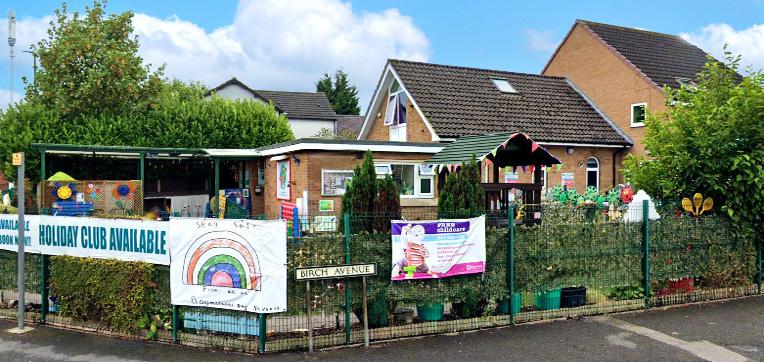

















4280732 - Merseyside

Freehold £800,000
• EBITDA Y/E 2023: c.£158,000
• Capacity for 50
• Affluent location
T: 07736 616 687

Leasehold £125,000
• EBITDA Y/E 2023: c.£42,000
• Capacity for 75
• Ofsted rated 'Good'
T: 07736 616 687
4280833 - Greater Manchester

5280067 - East of Scotland

Freehold/Leasehold Offers Invited
• T/O Y/E 2023: £593,854
• EBITDA Y/E 2023: £180,530
• Capacity for c.50 (with PP to expand)
T: 07754 559 529
Freehold £1,500,000
• Substantial educational asset
• Ideal setting for SEN provider
• Available with vacant possession
T: 07701 315 061

Leasehold £85,000
• EBITDA: £30,000
• Ideal for first time buyer
• Full team in situ
T: 07701 315 061


New Lease
• New Build Nursery Development
• Long lease of 20 years available
• Spacious plans for a 5,850 sq ft nursery
T: 07736 620 855
Freehold £600,000
• Capacity for 57
• T/O in excess of c.£250,000
• Scope to increase capacity
T: 07526 175 857

4280795 - Tyne & Wear
5880124 - Warwickshire

Freehold £850,000
• T/O Y/E 2023: c.£600,000
• Prominent position
• Capacity for 64
T: 07791 979 343

